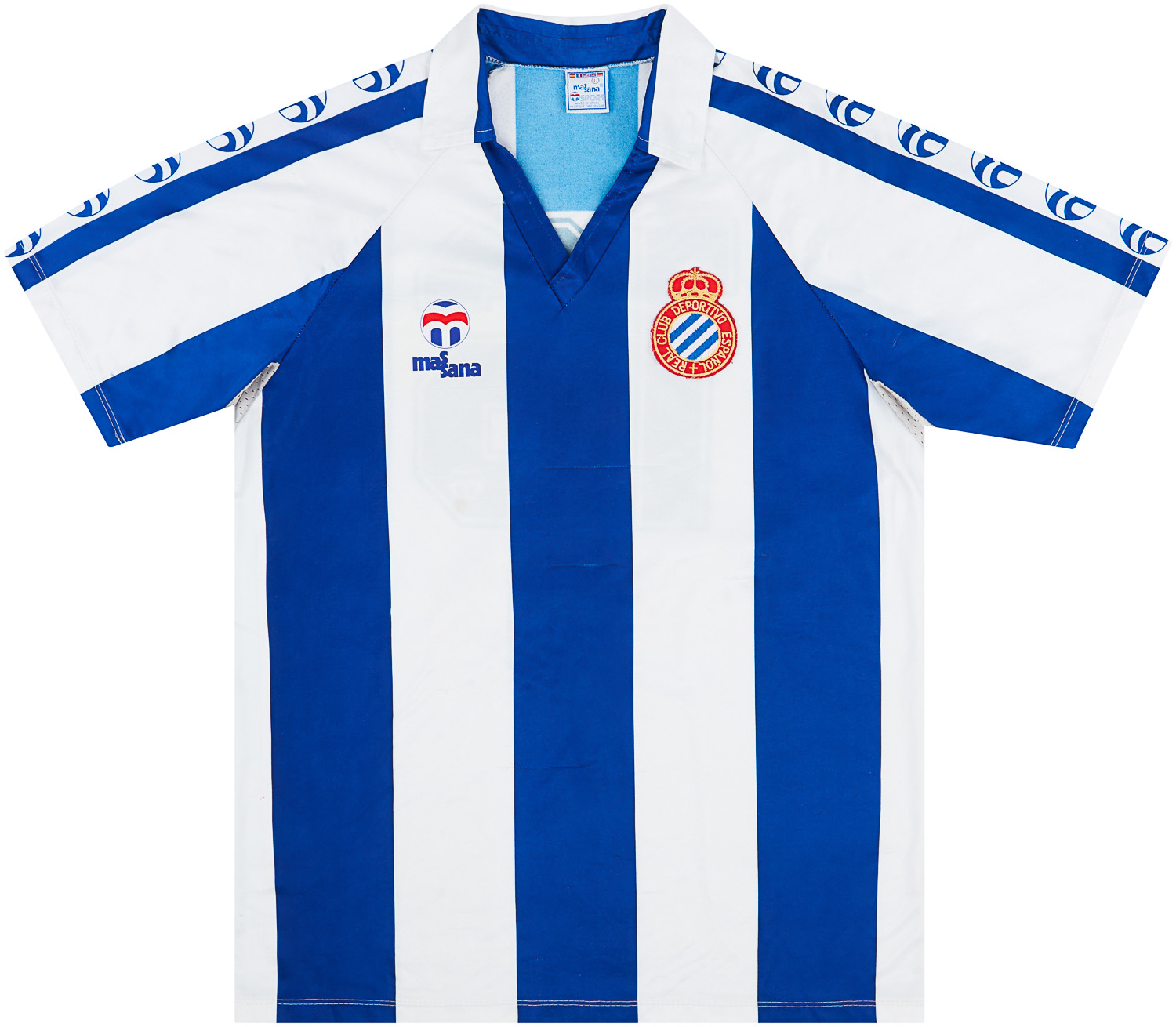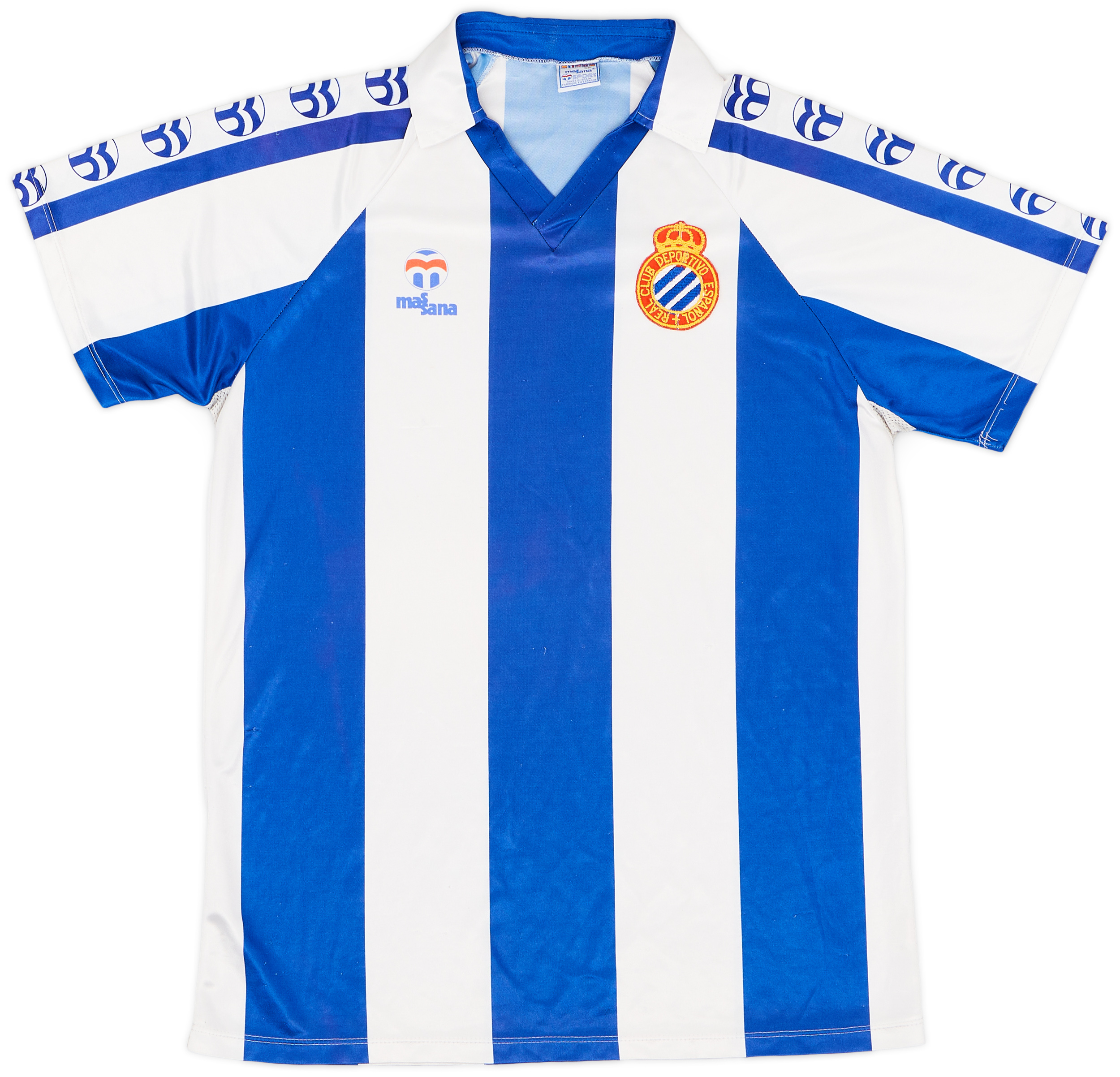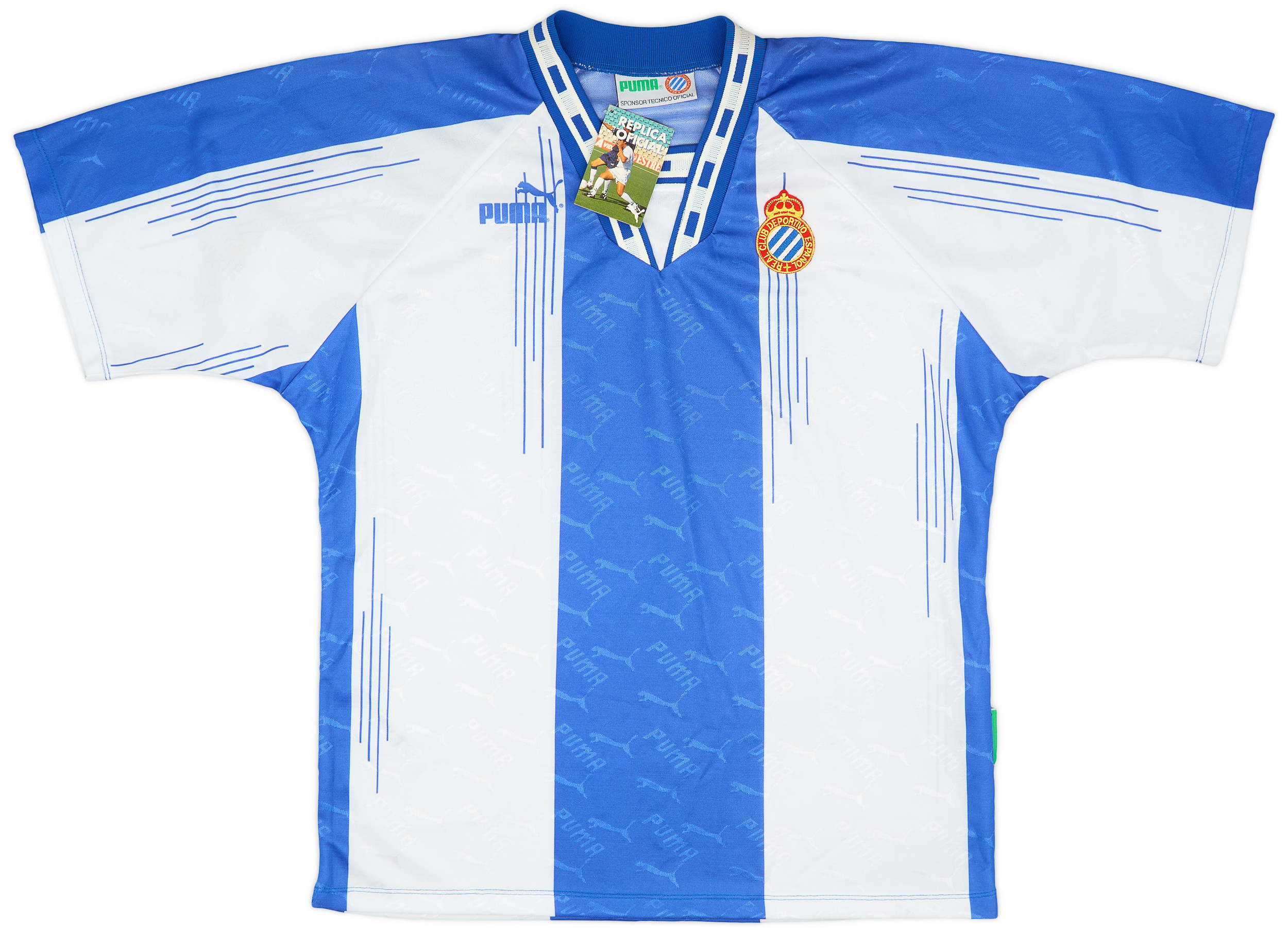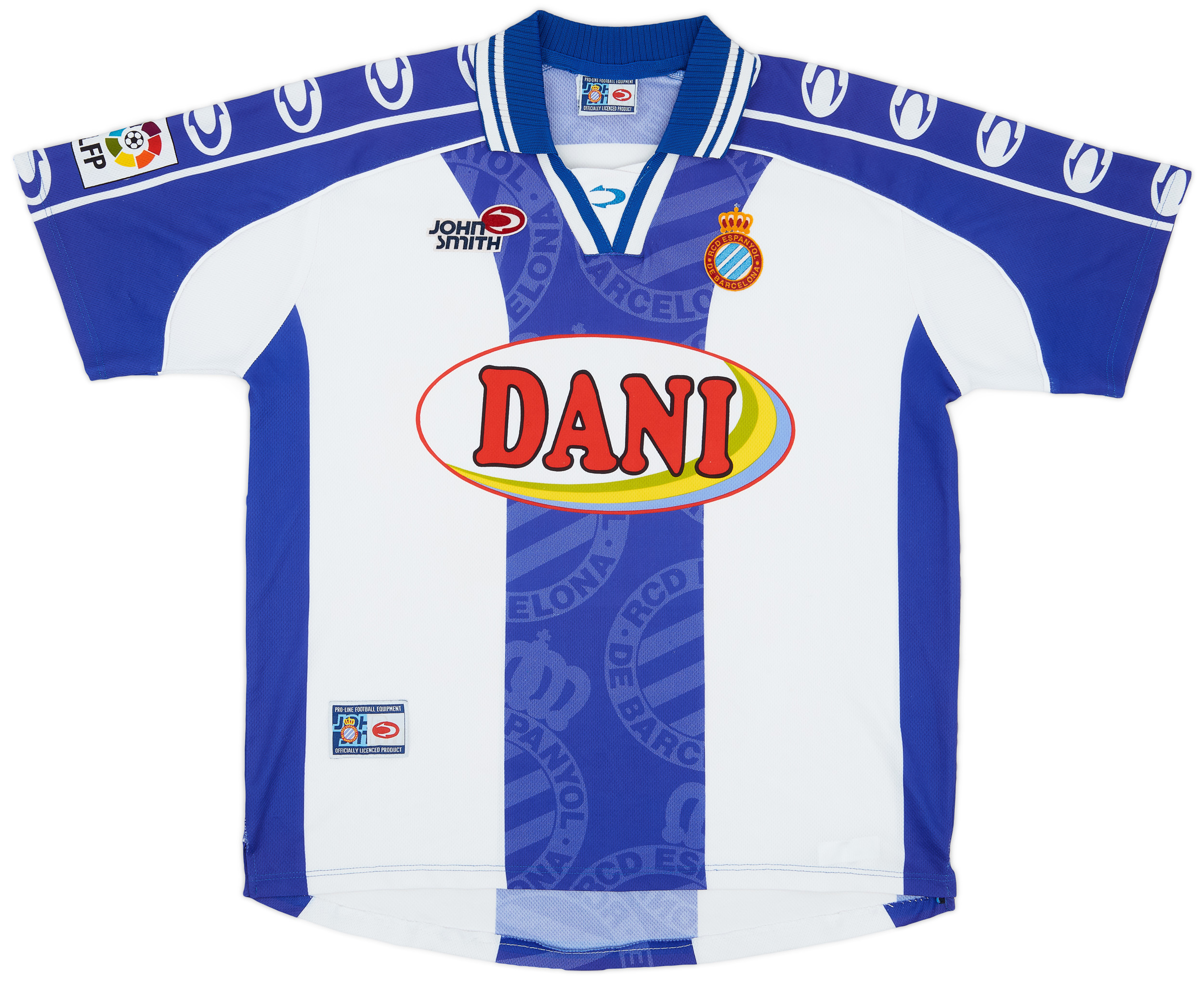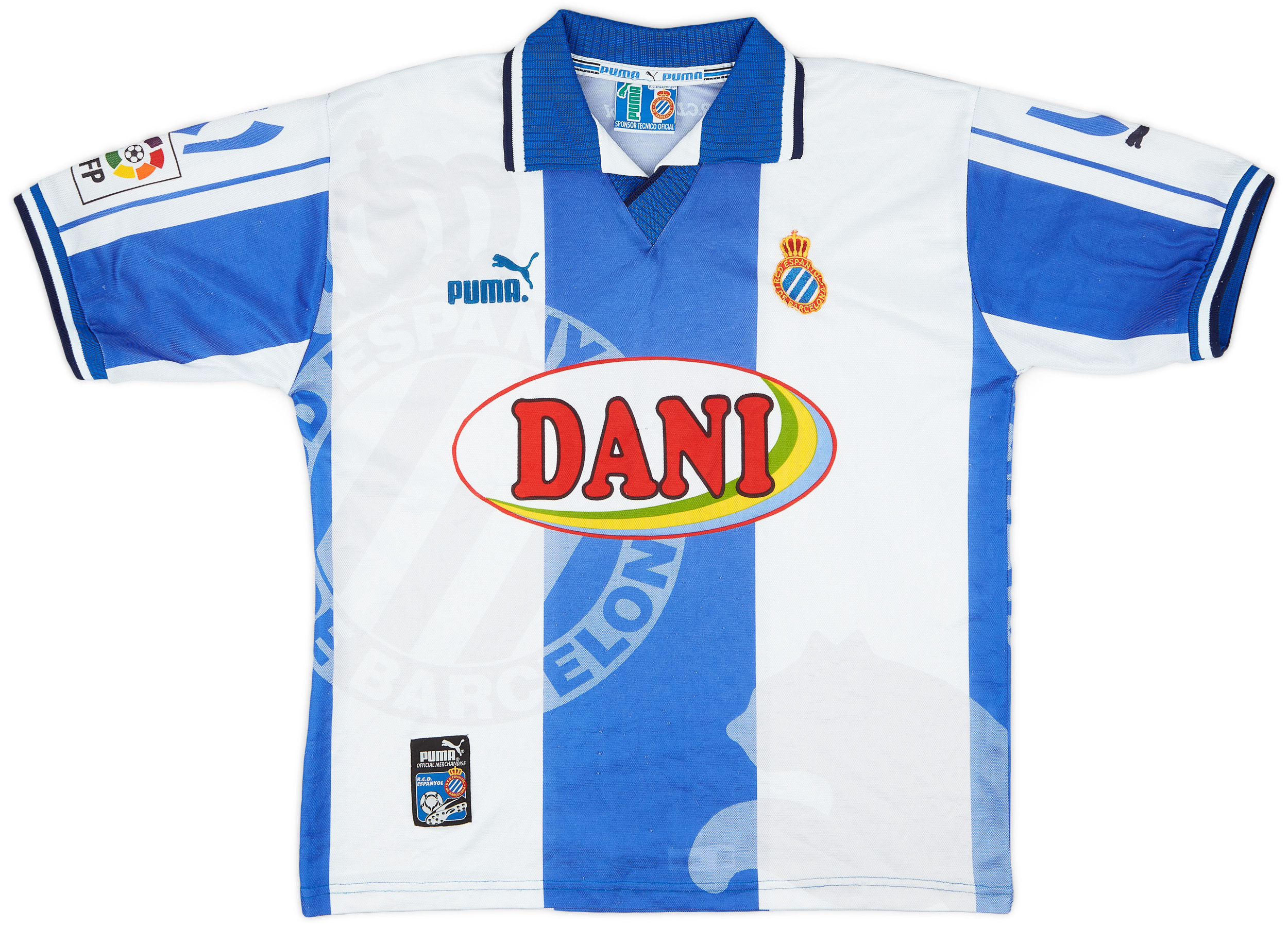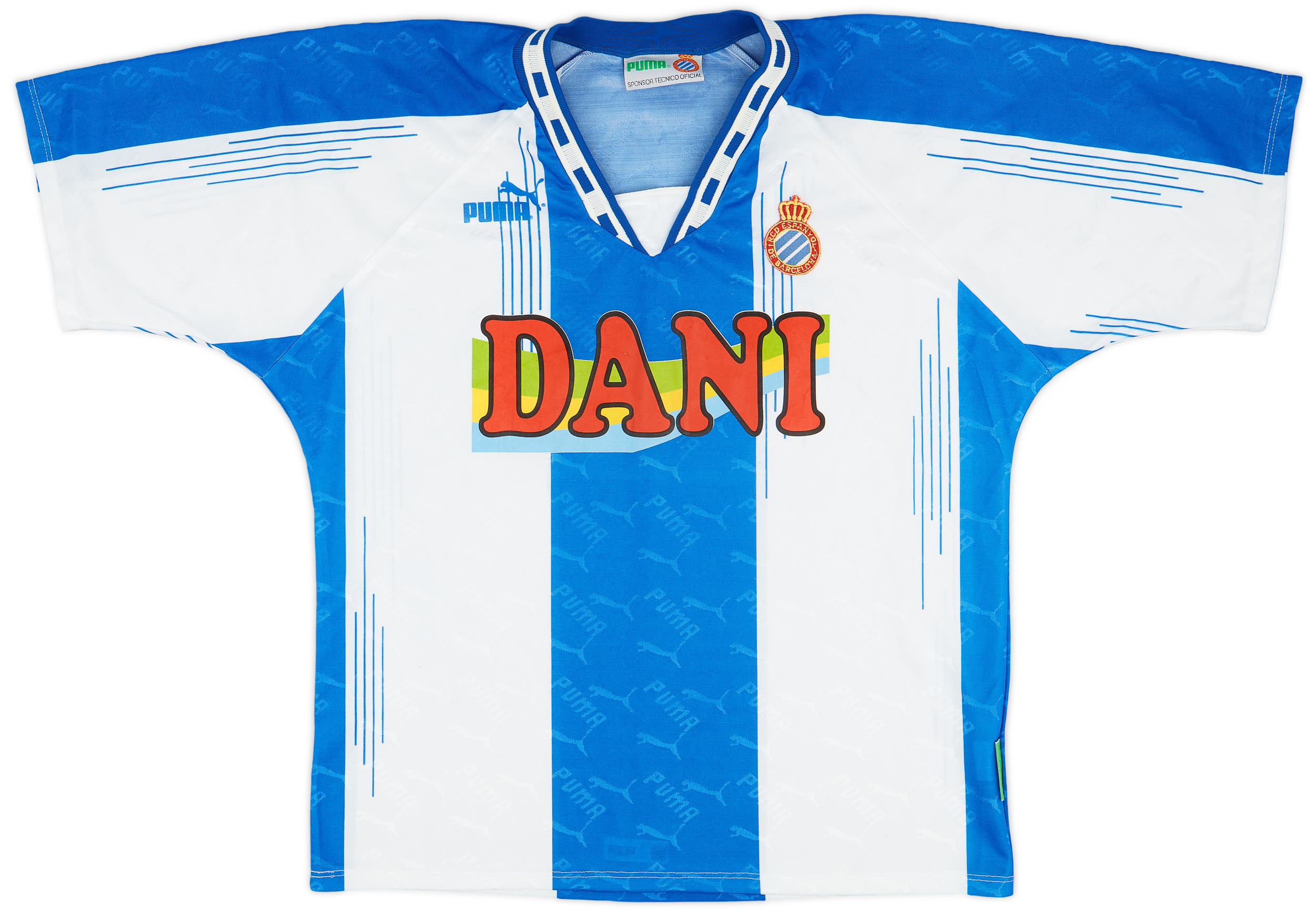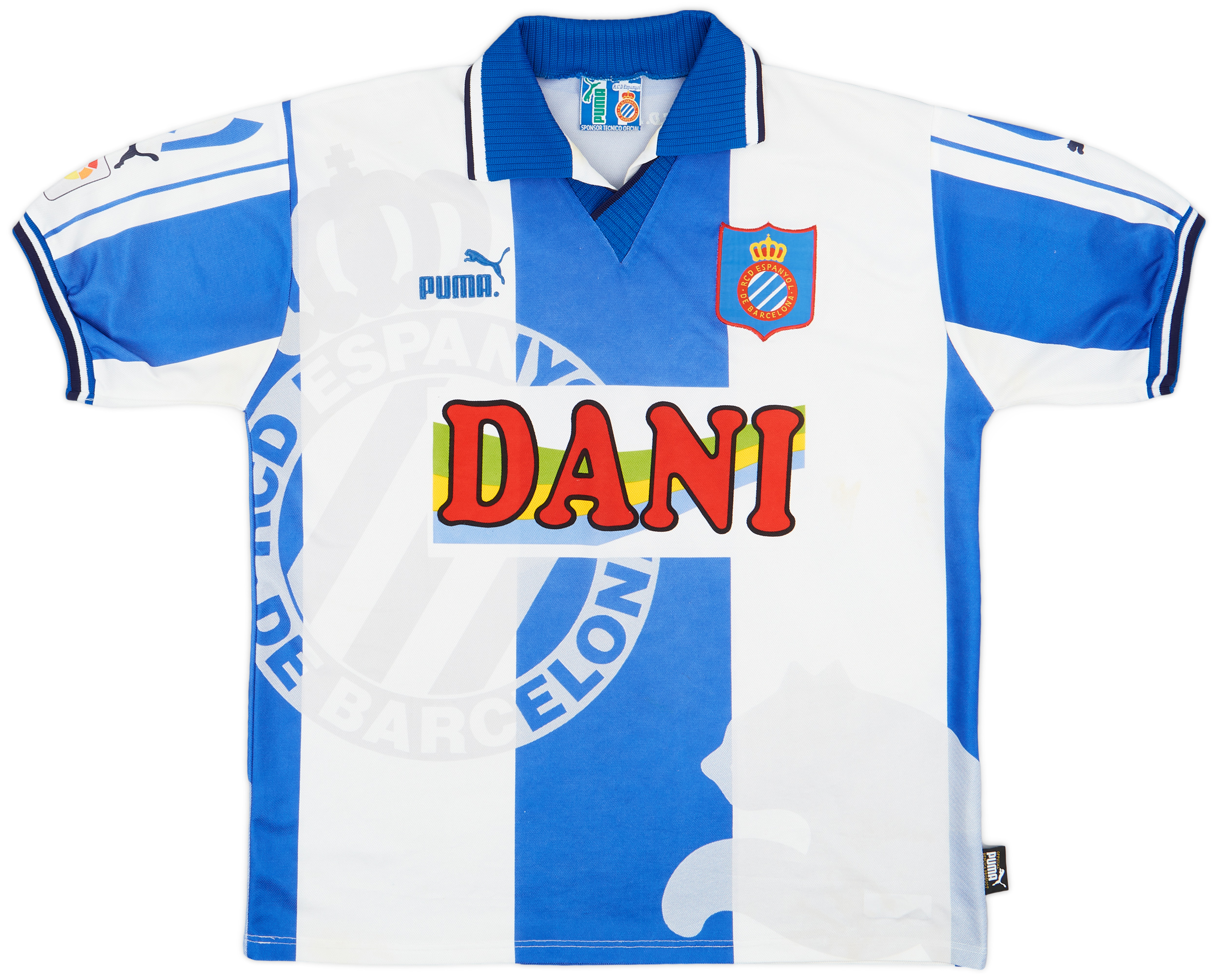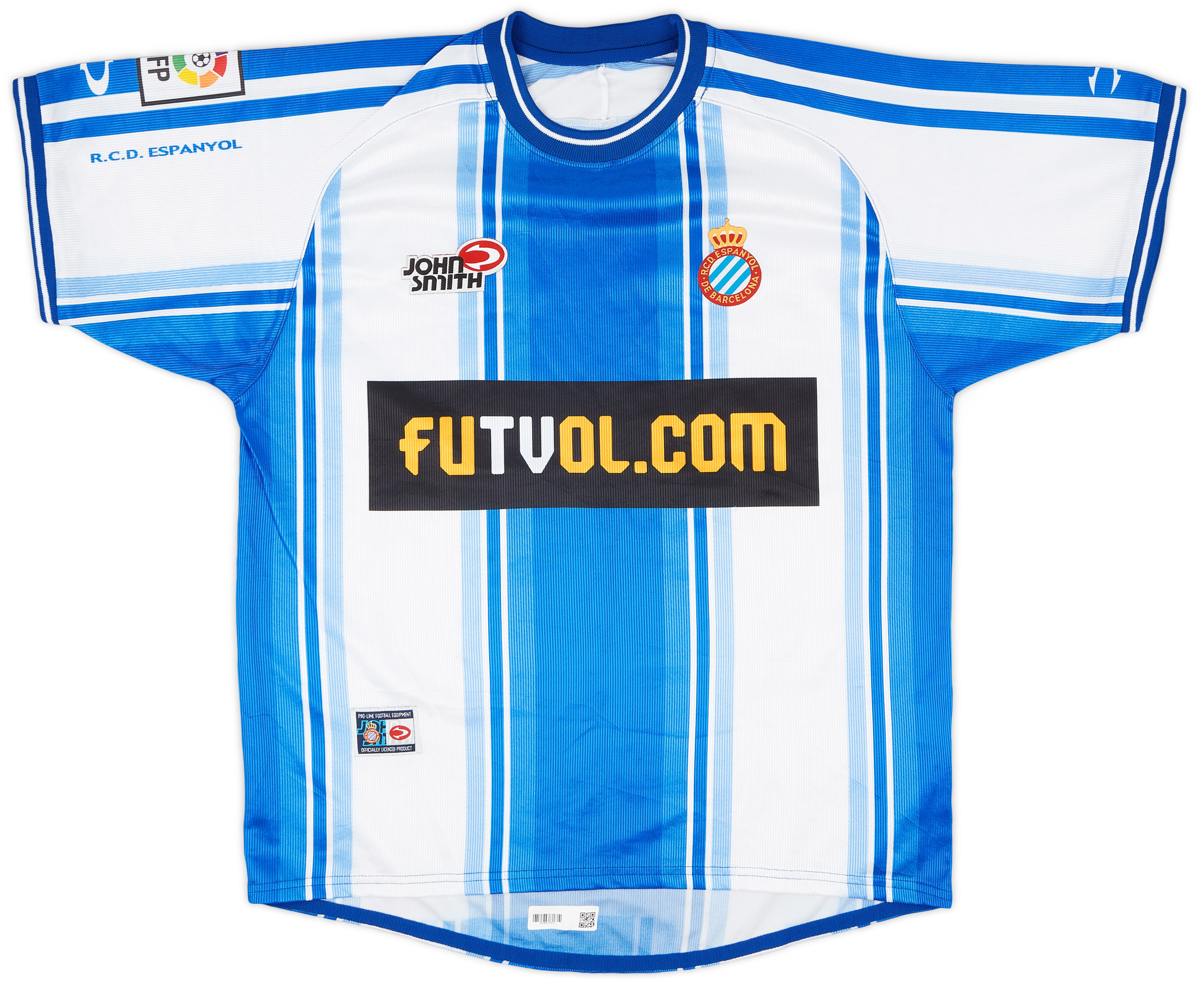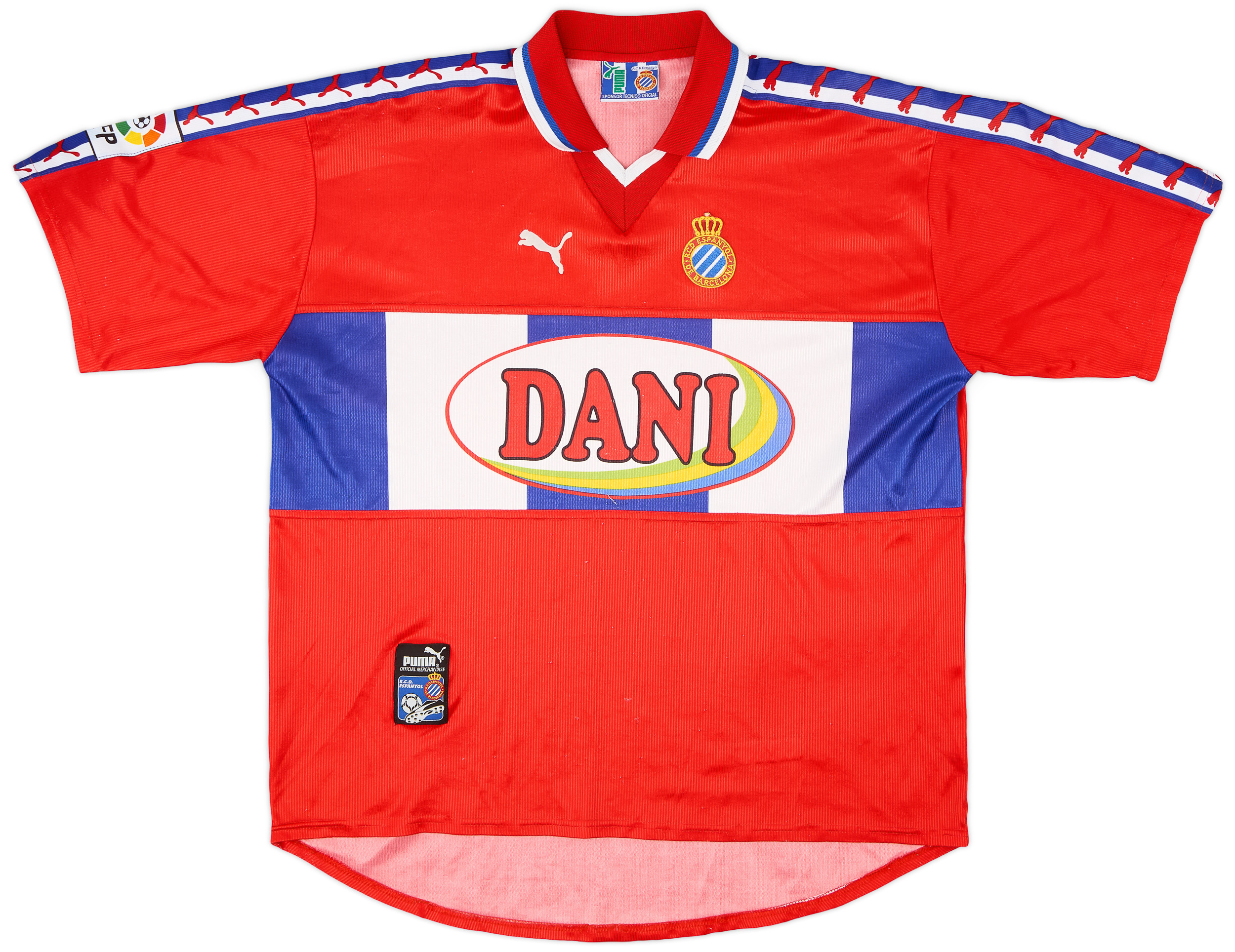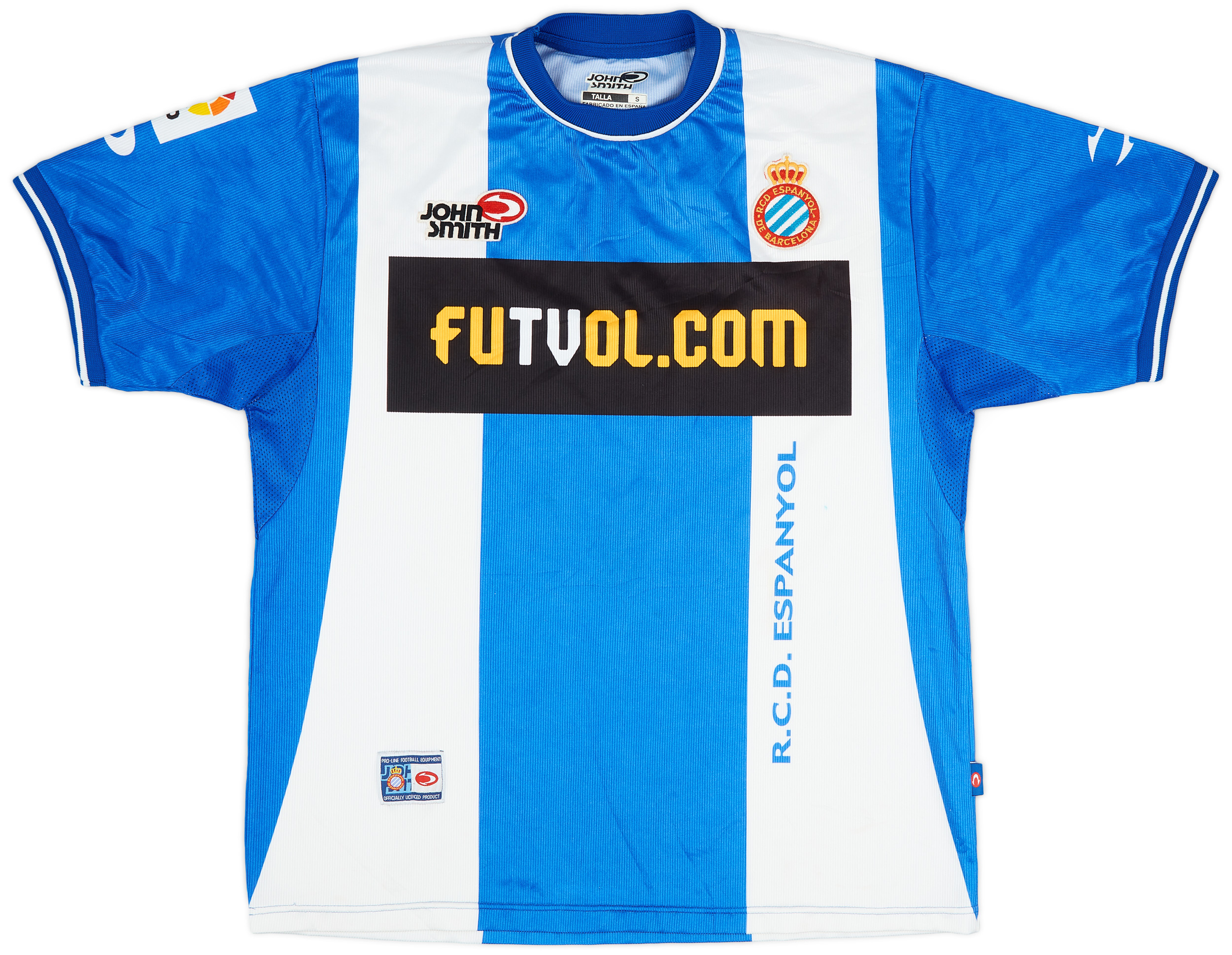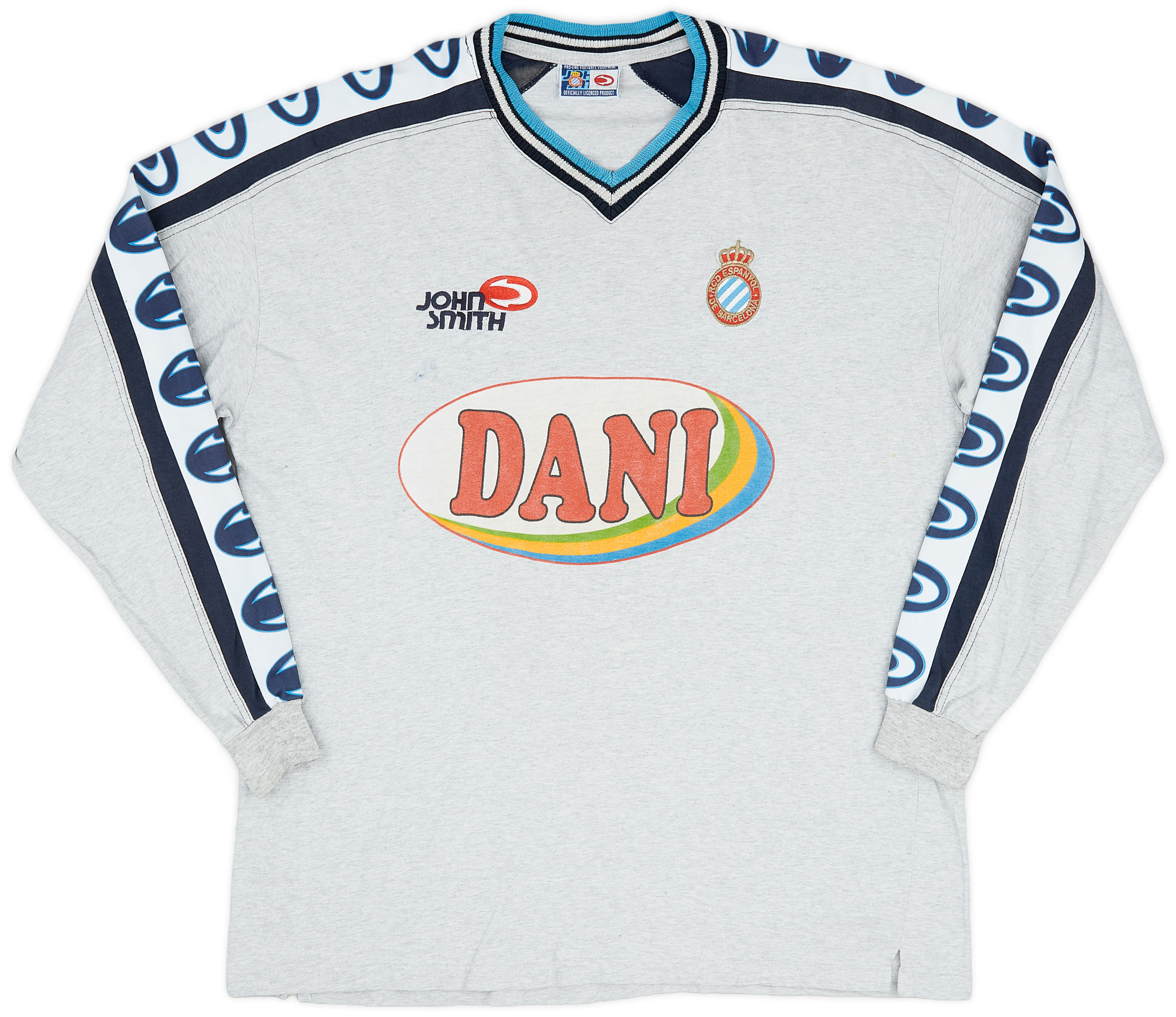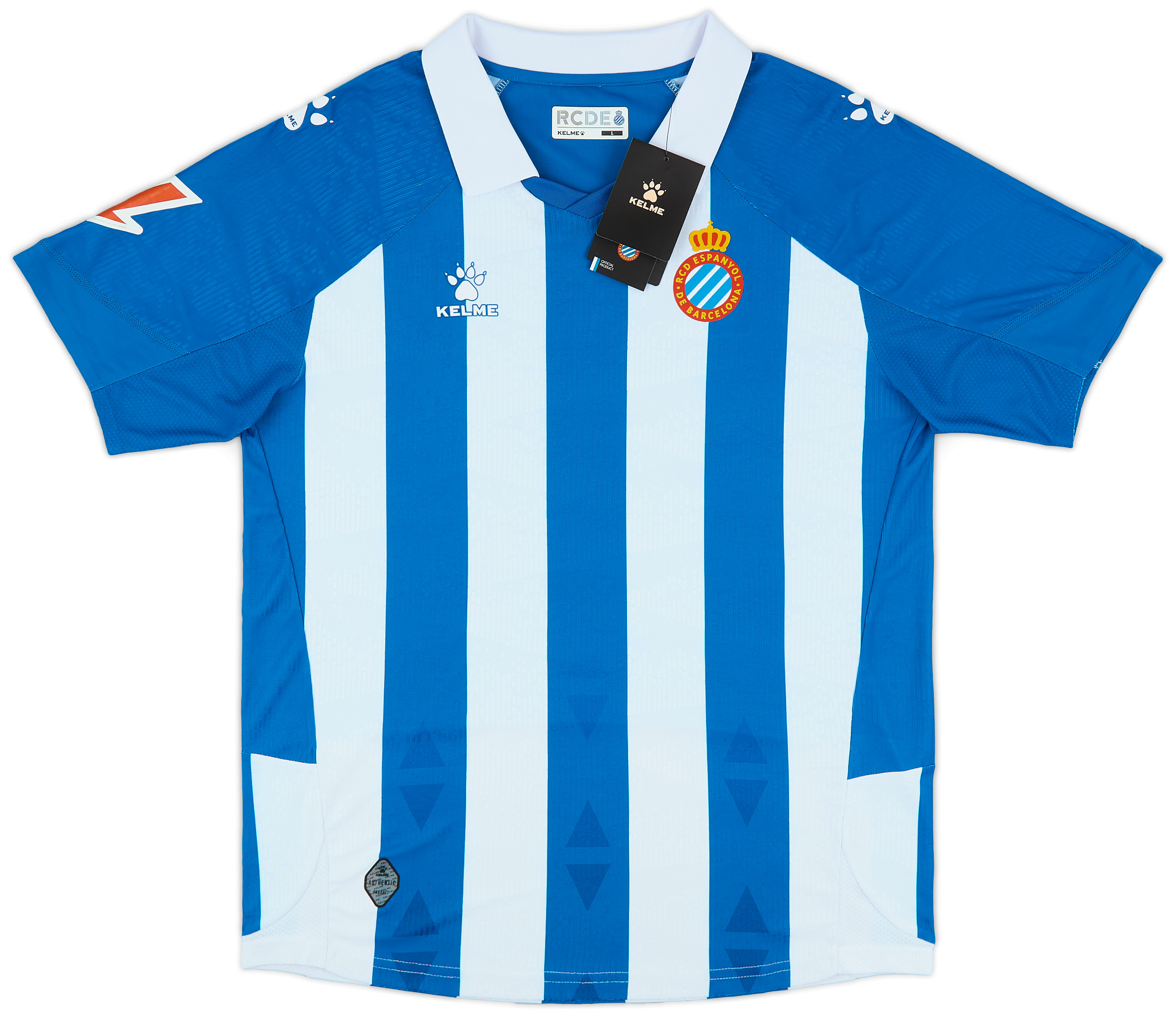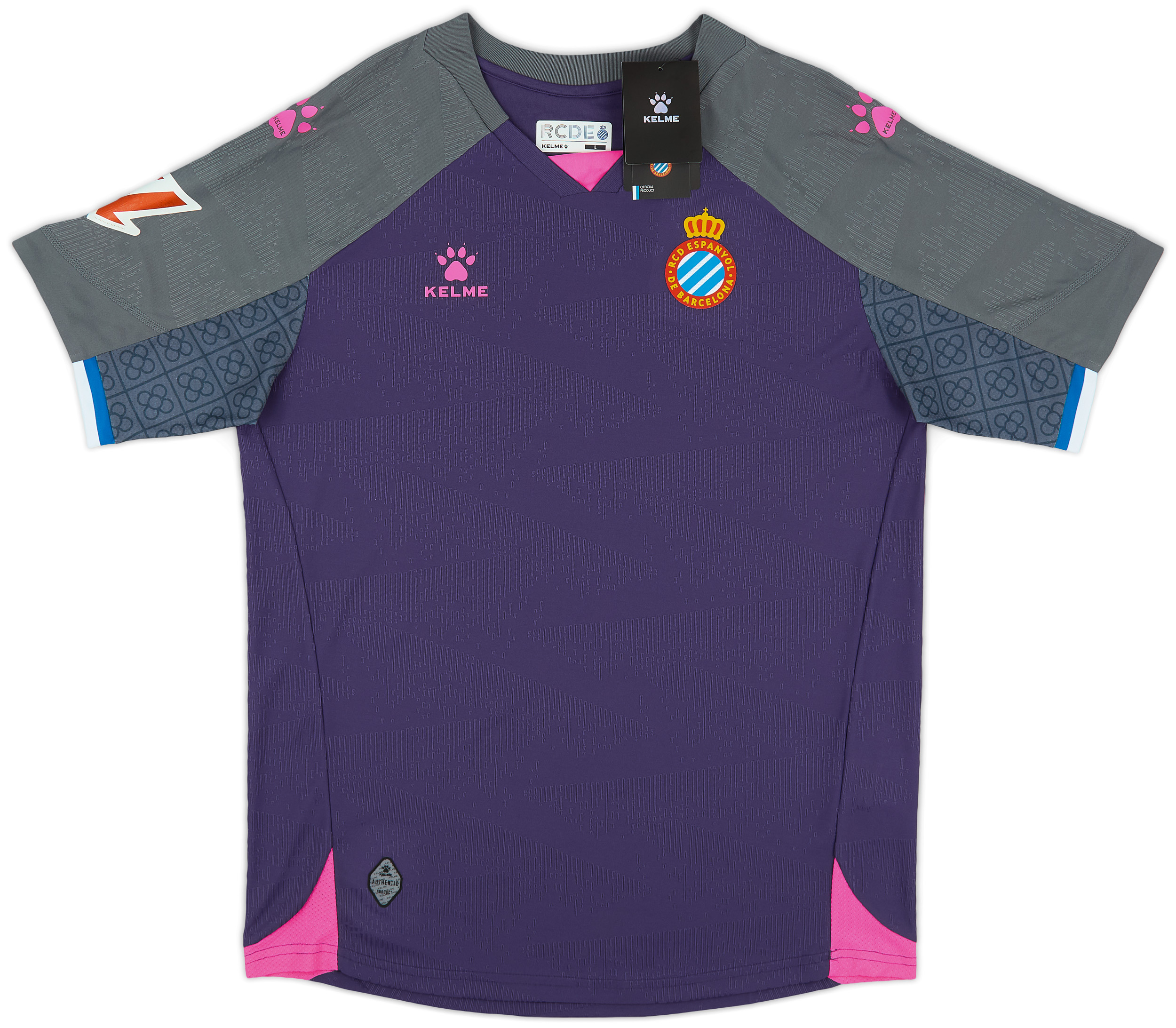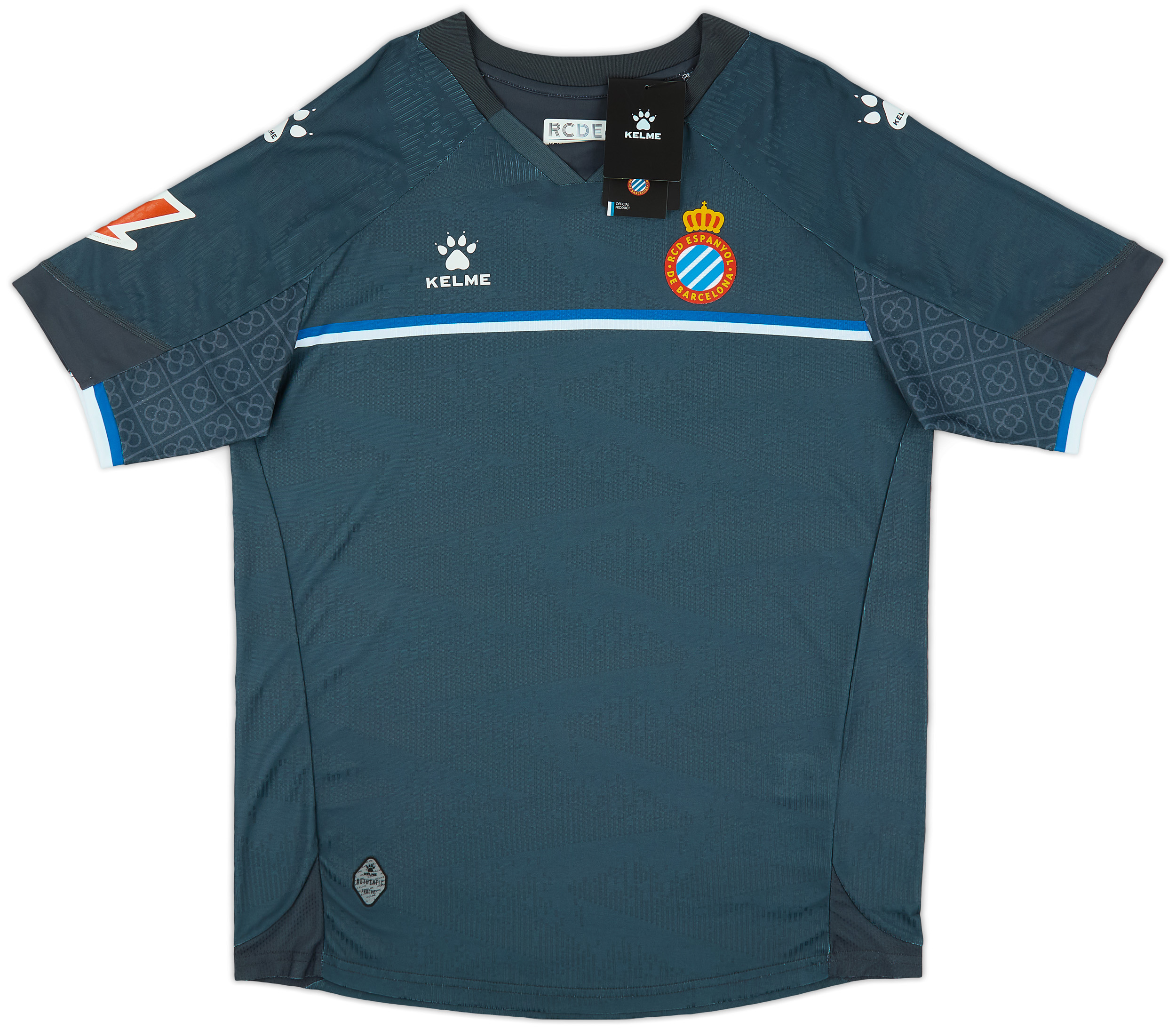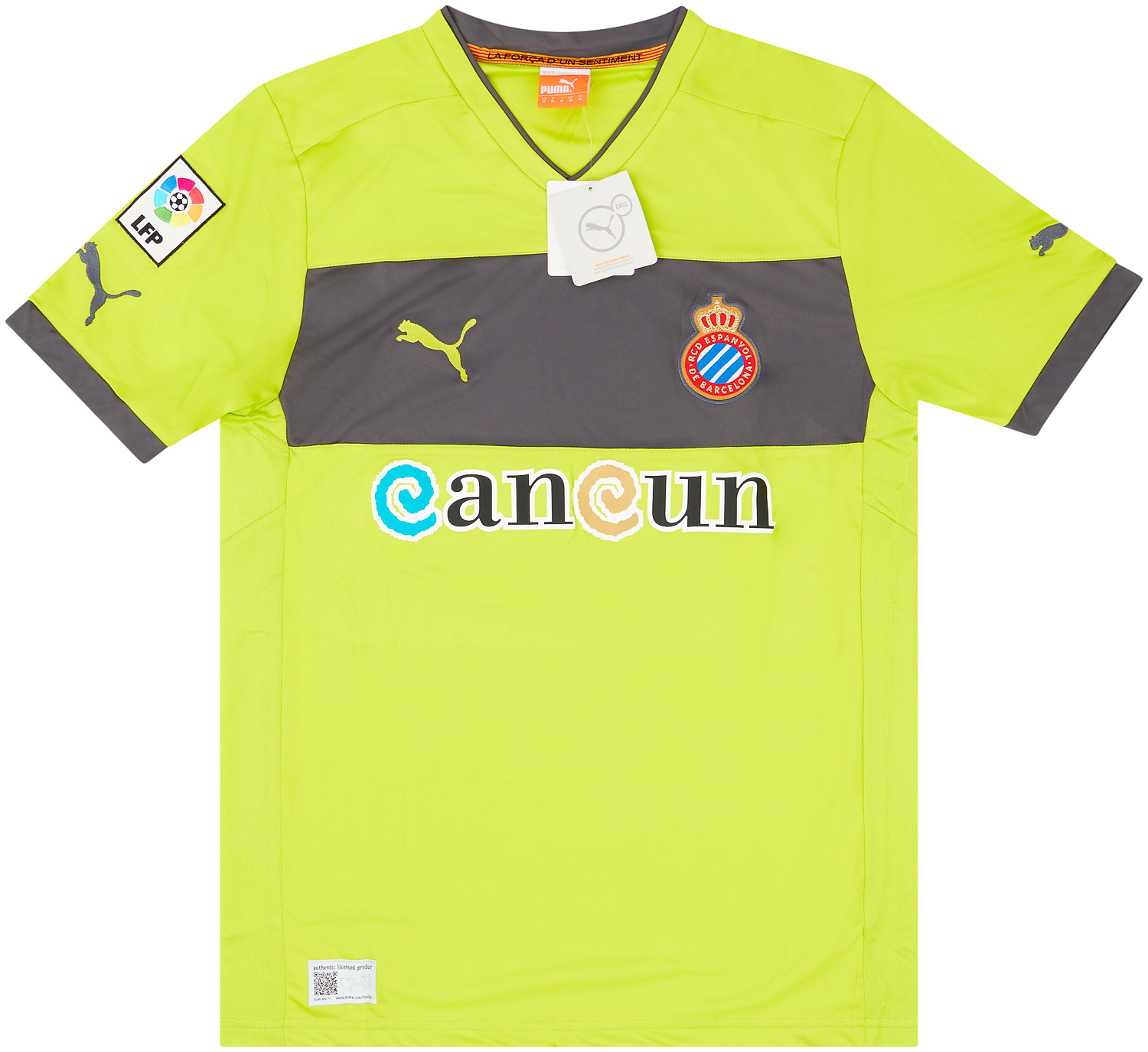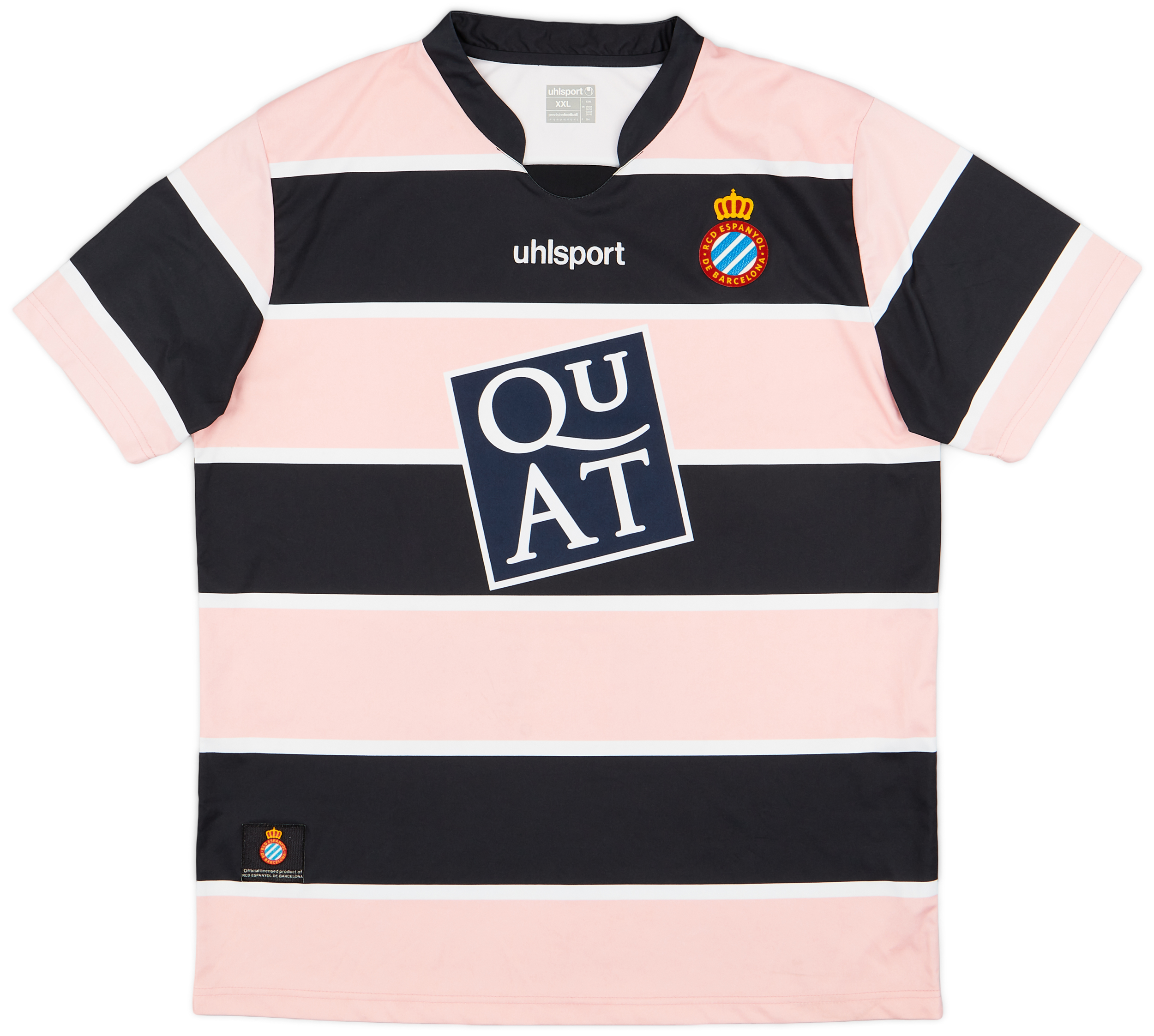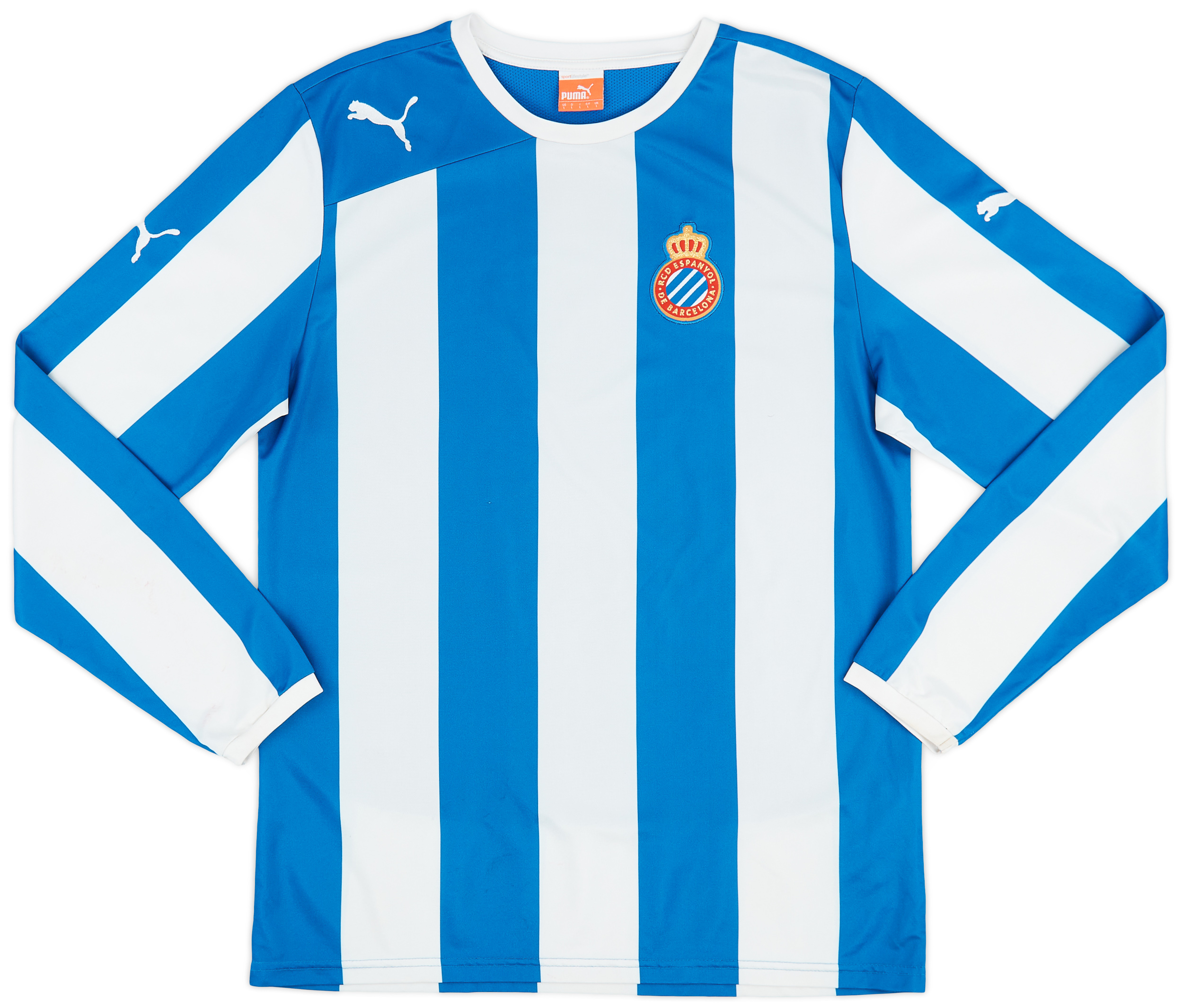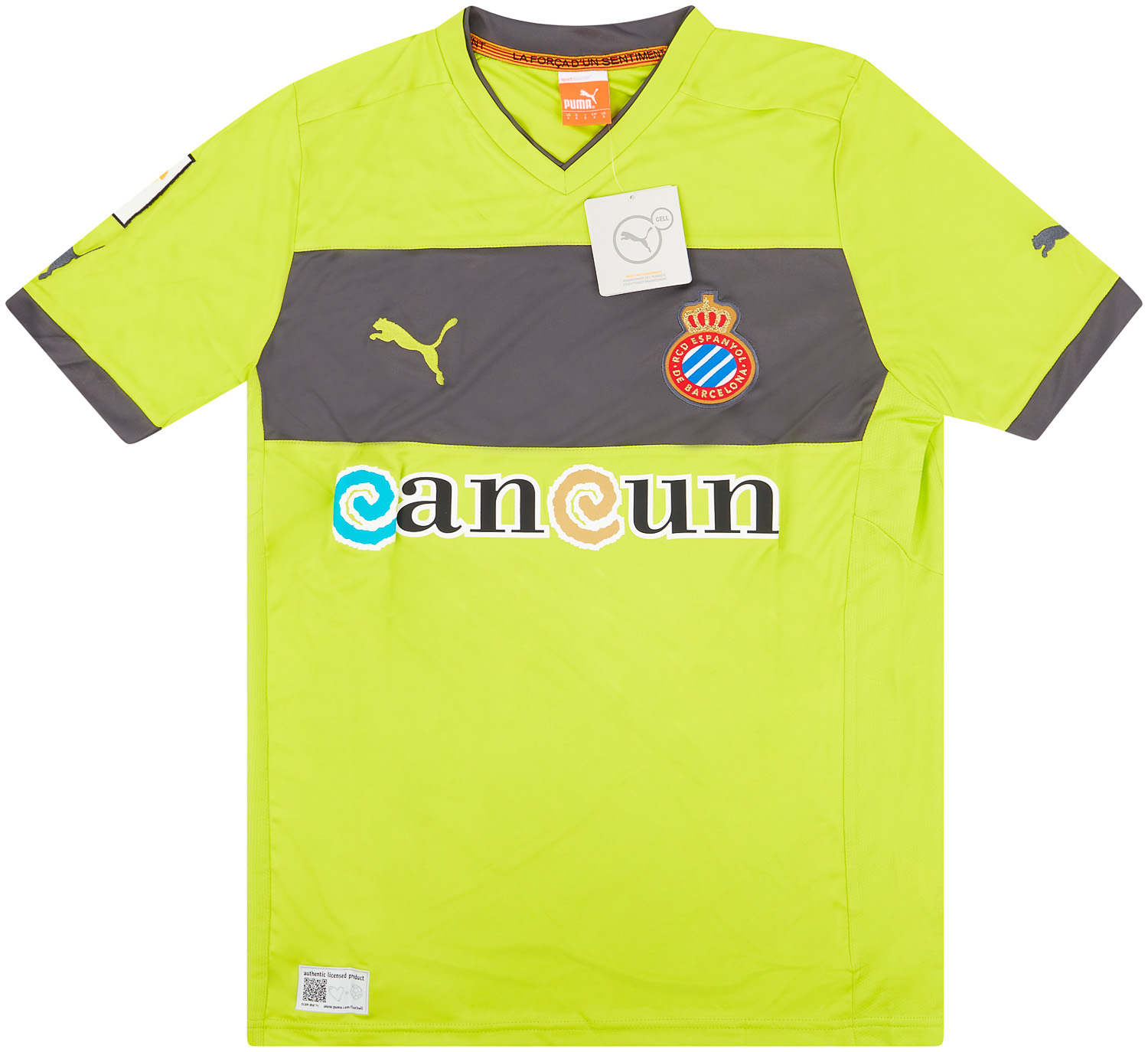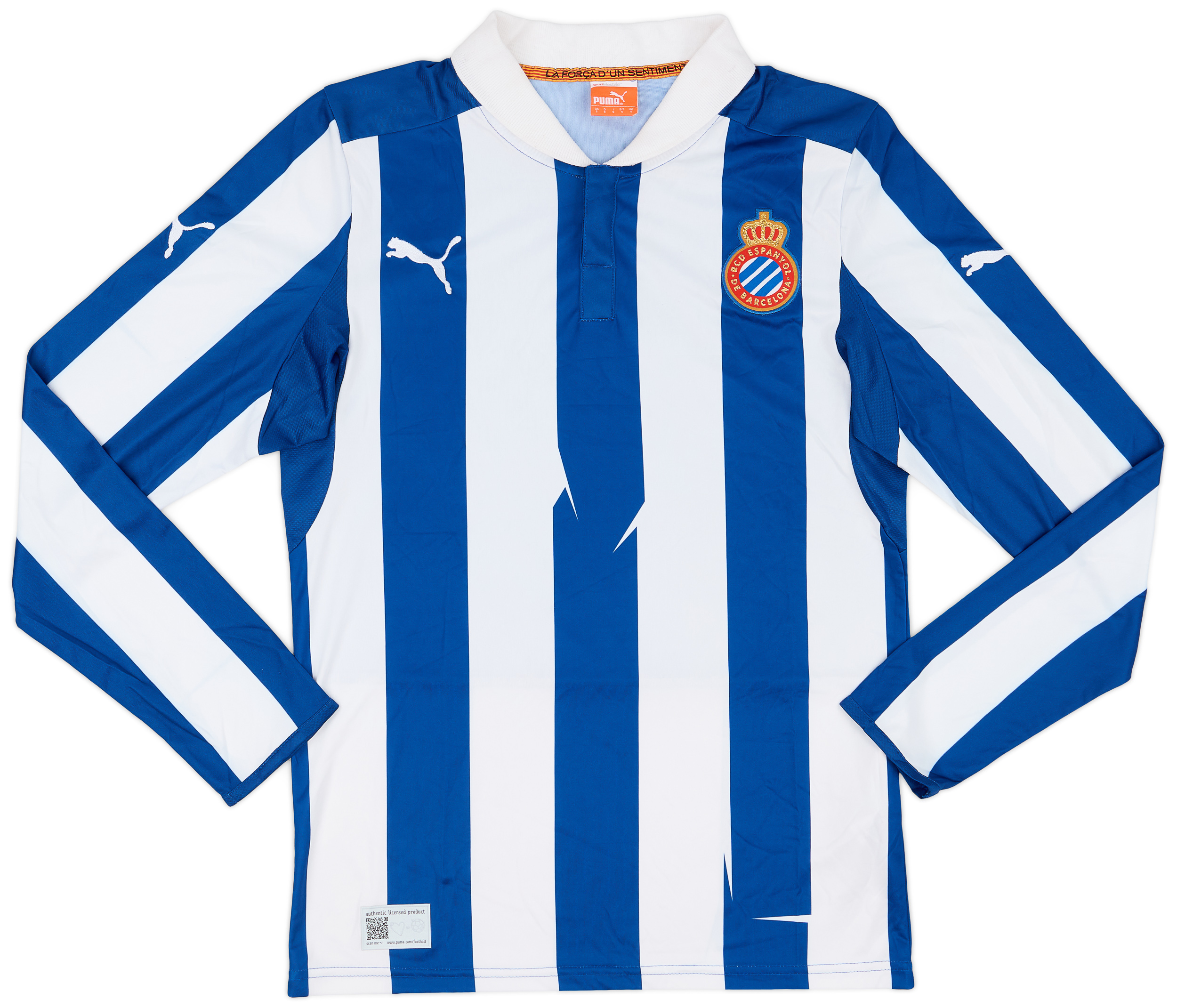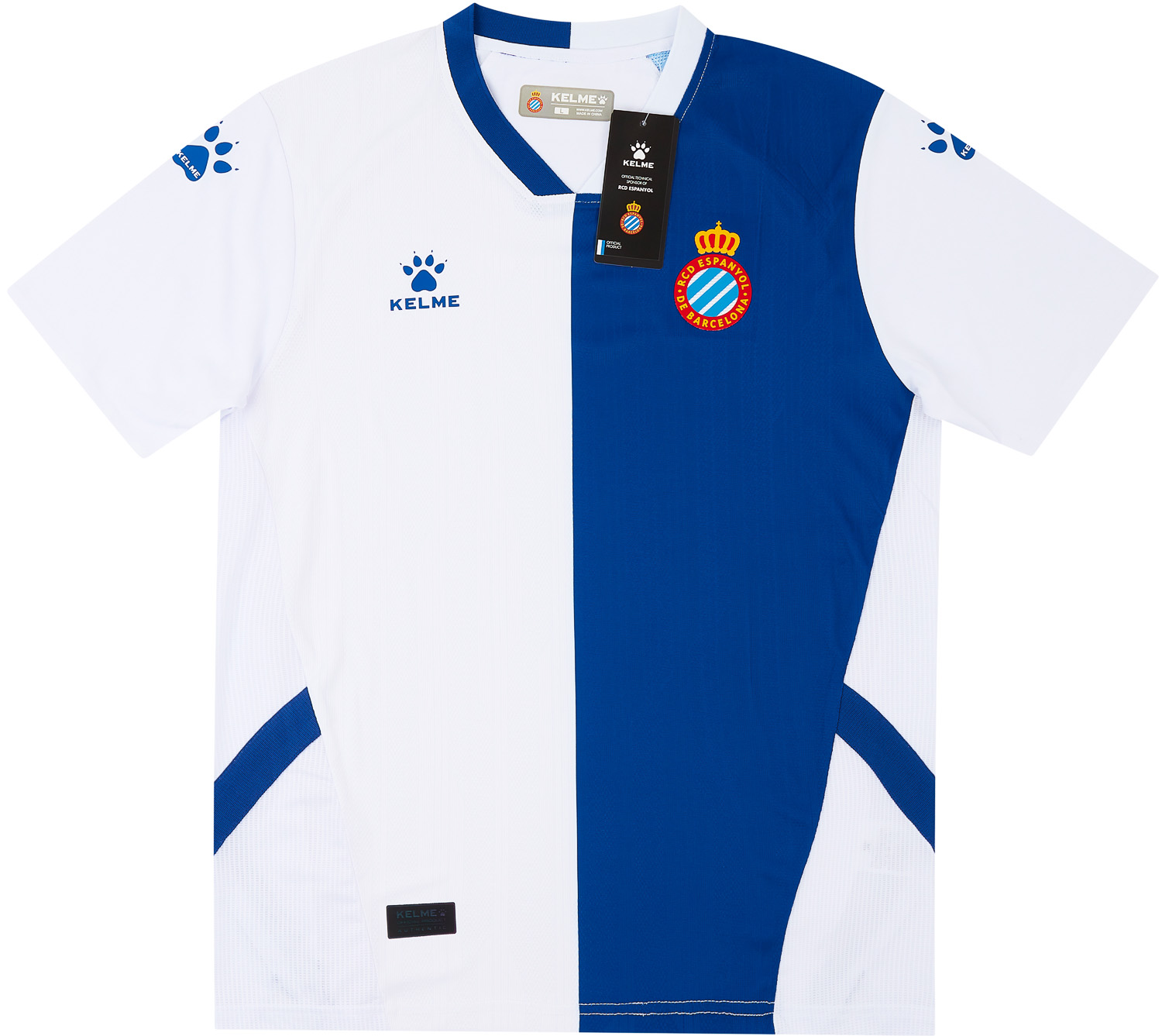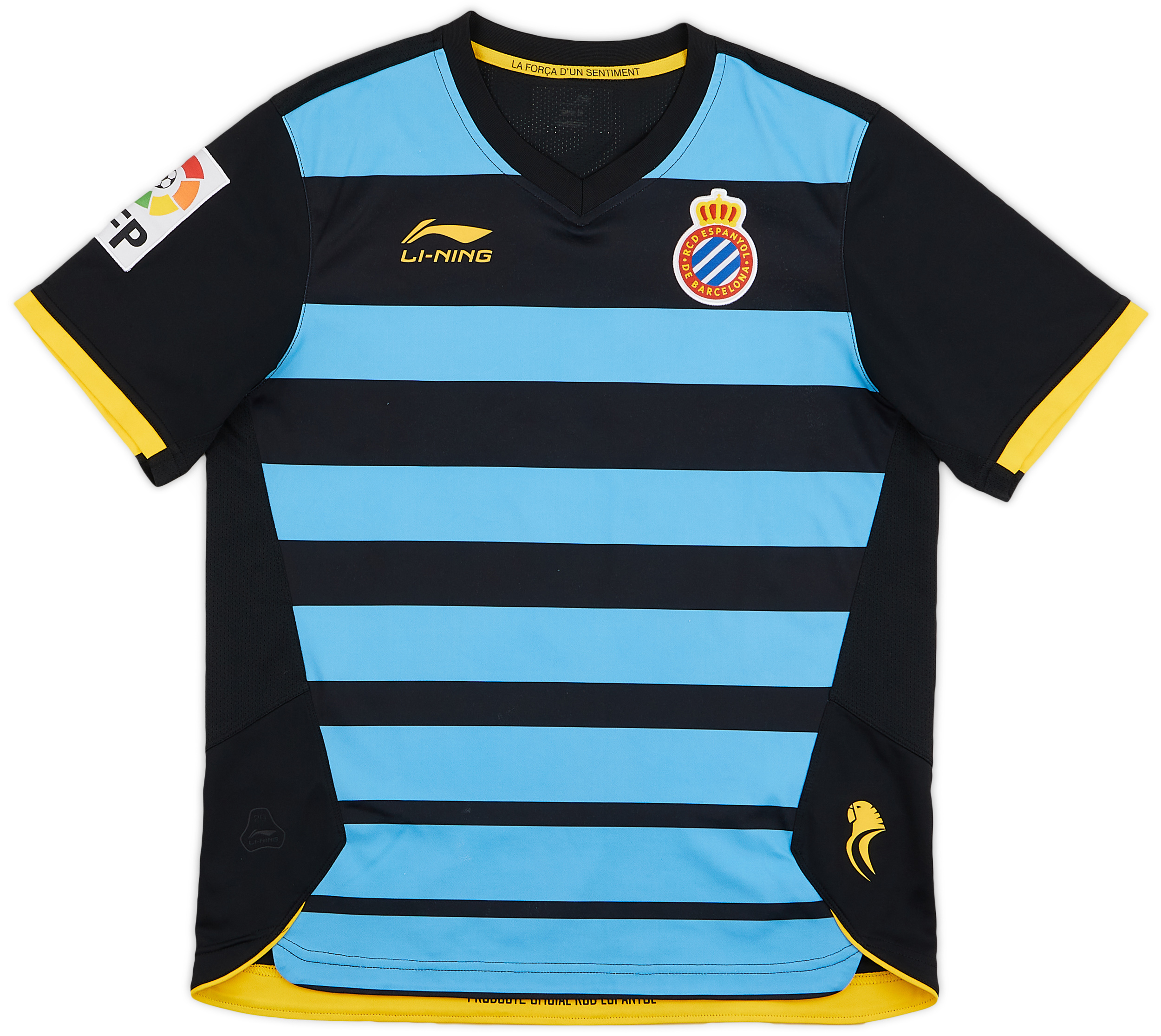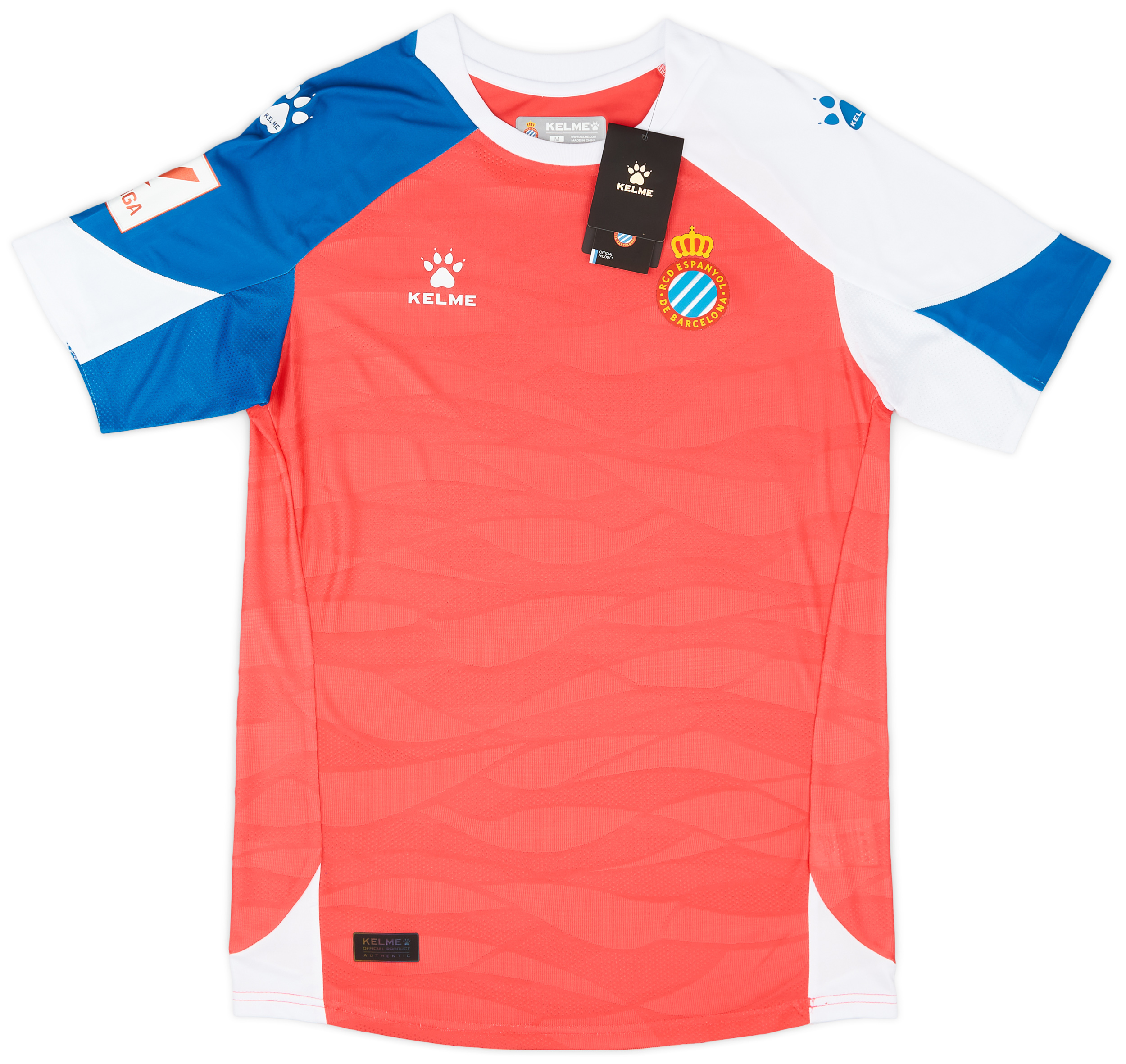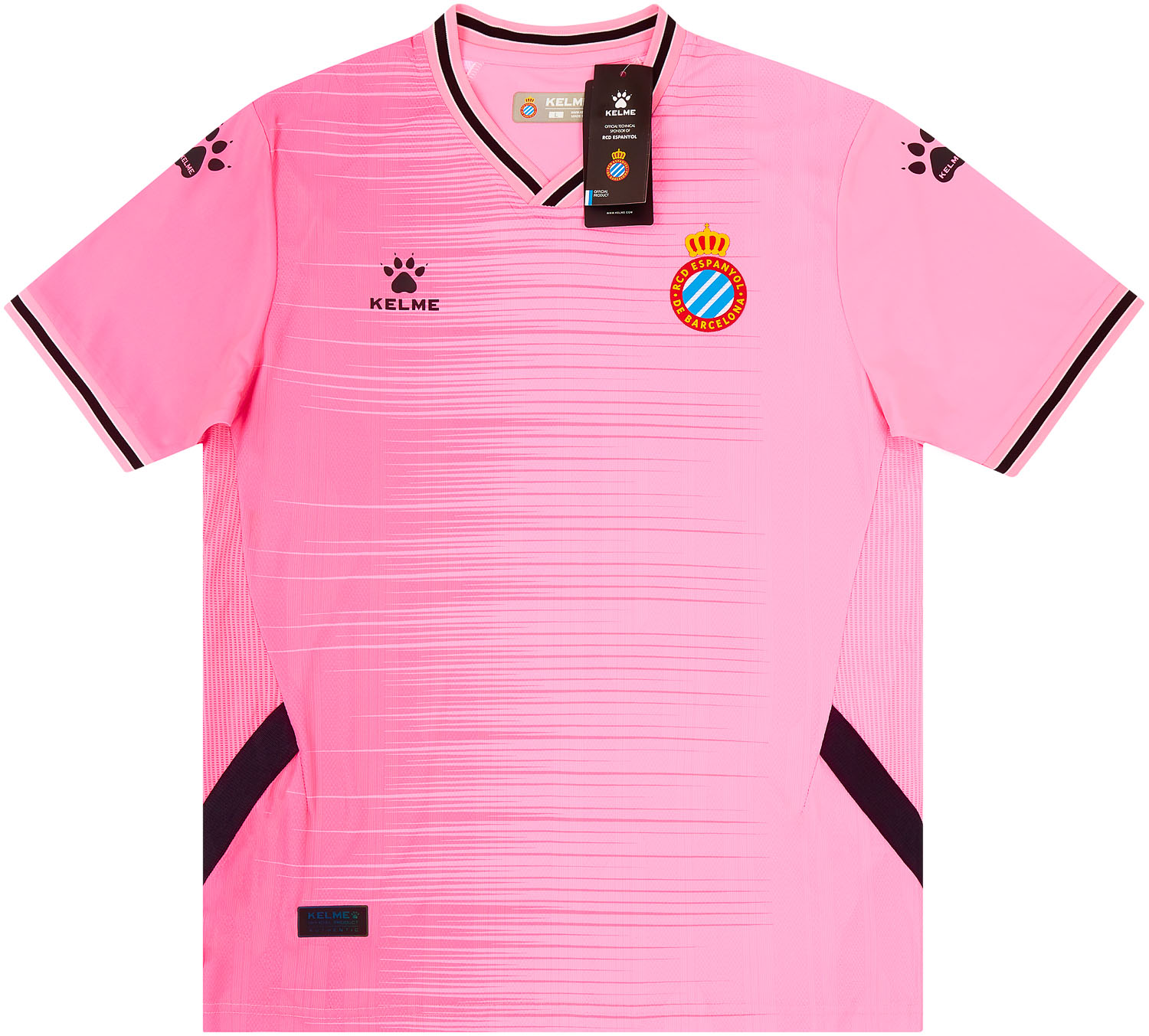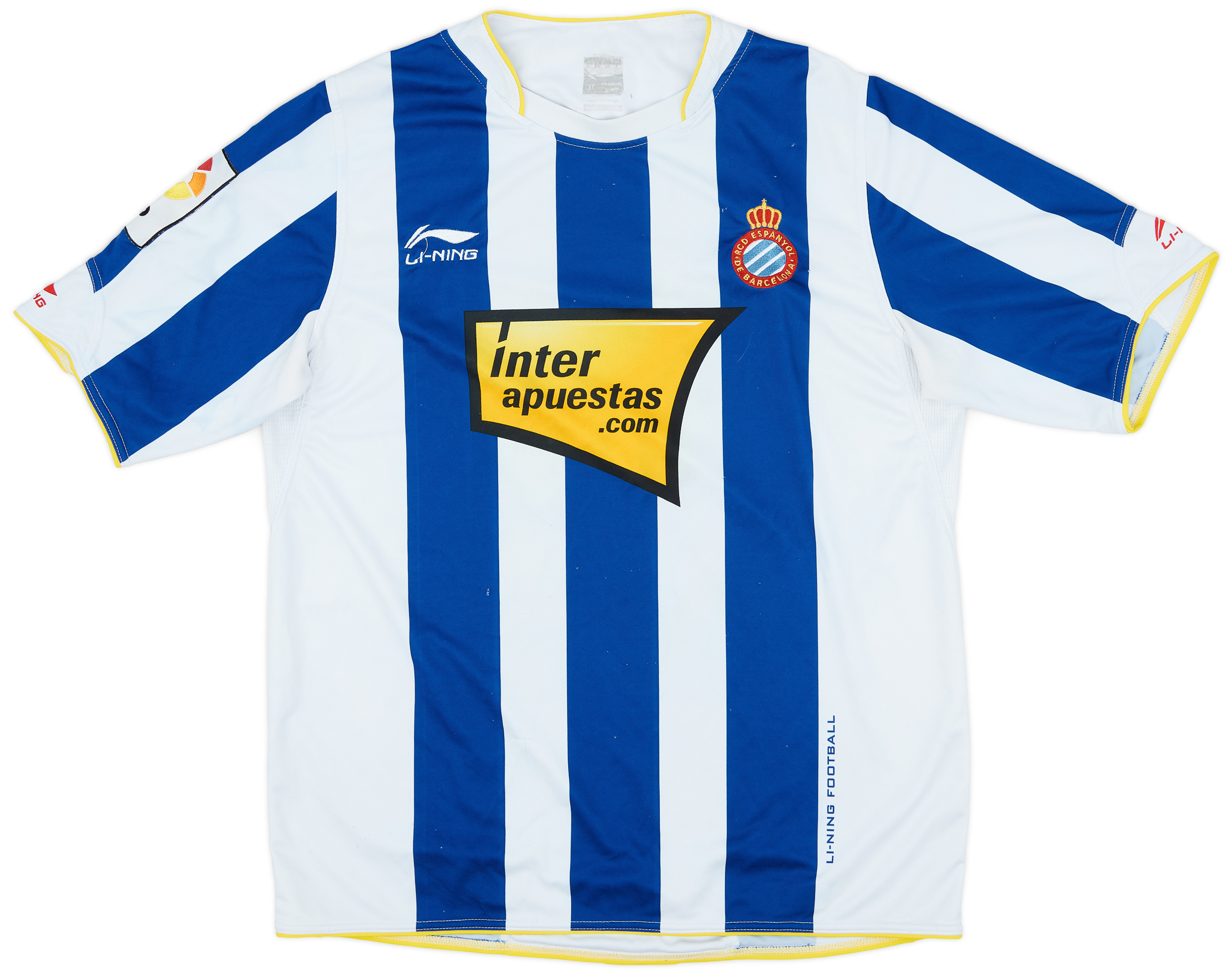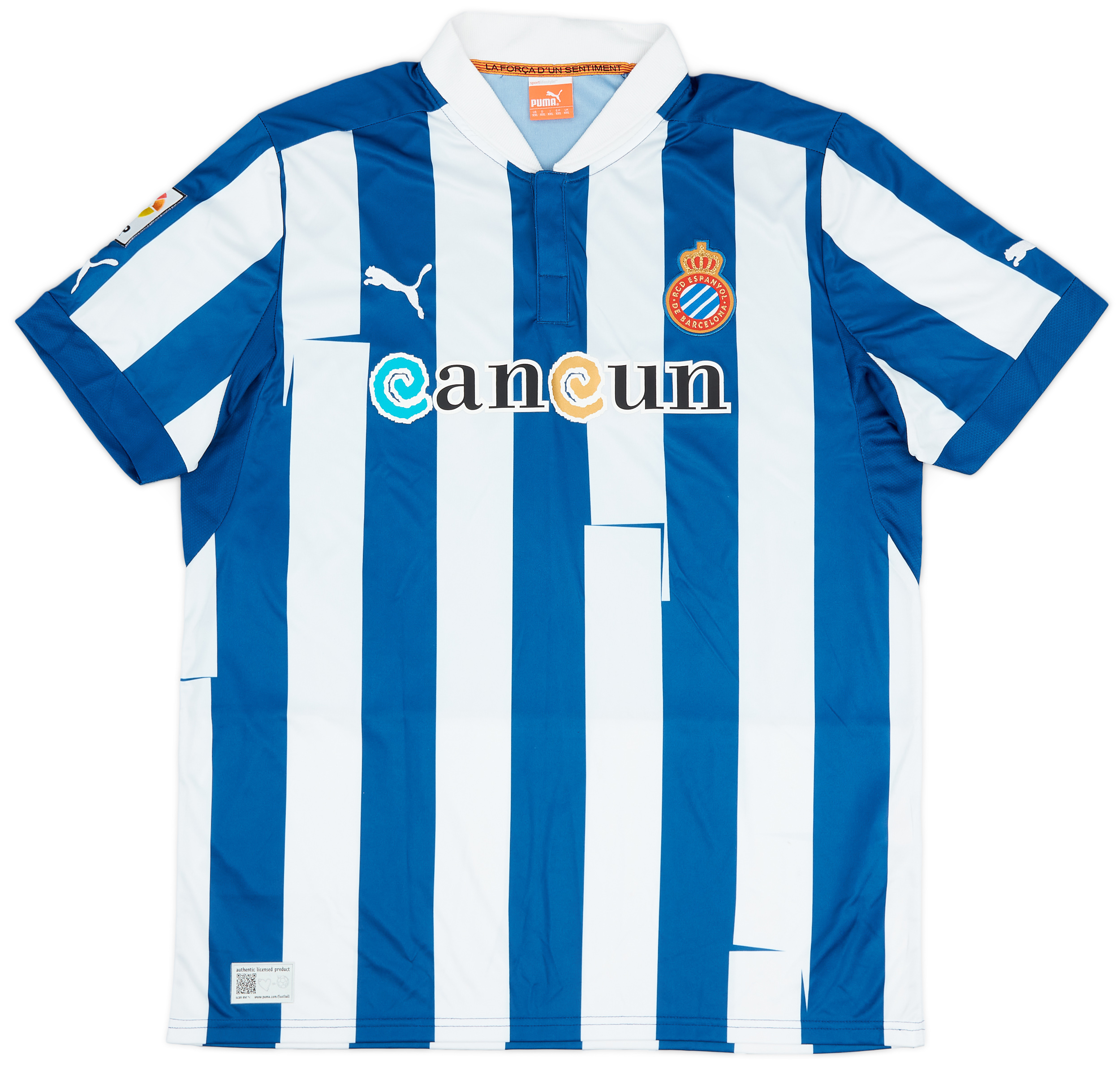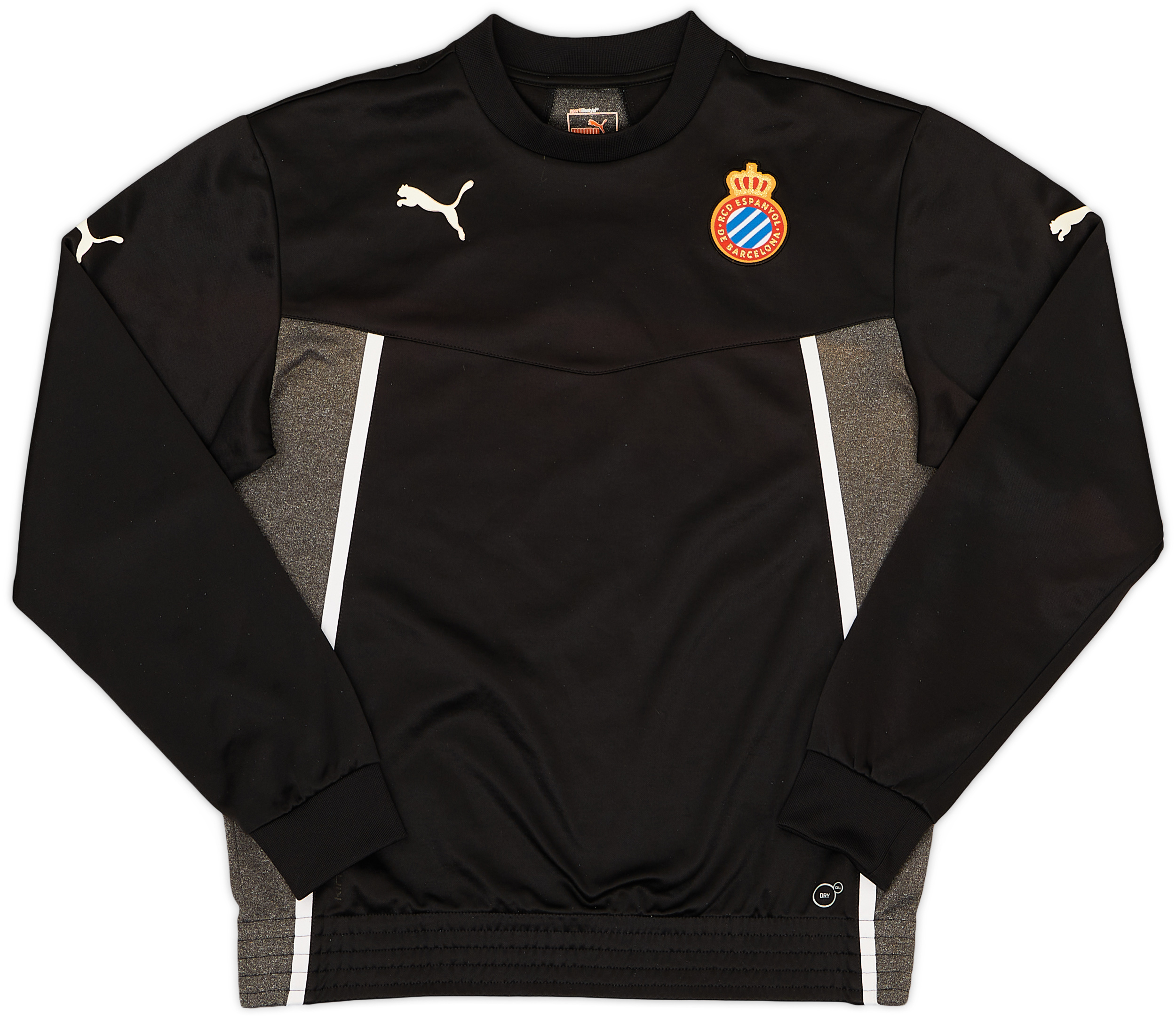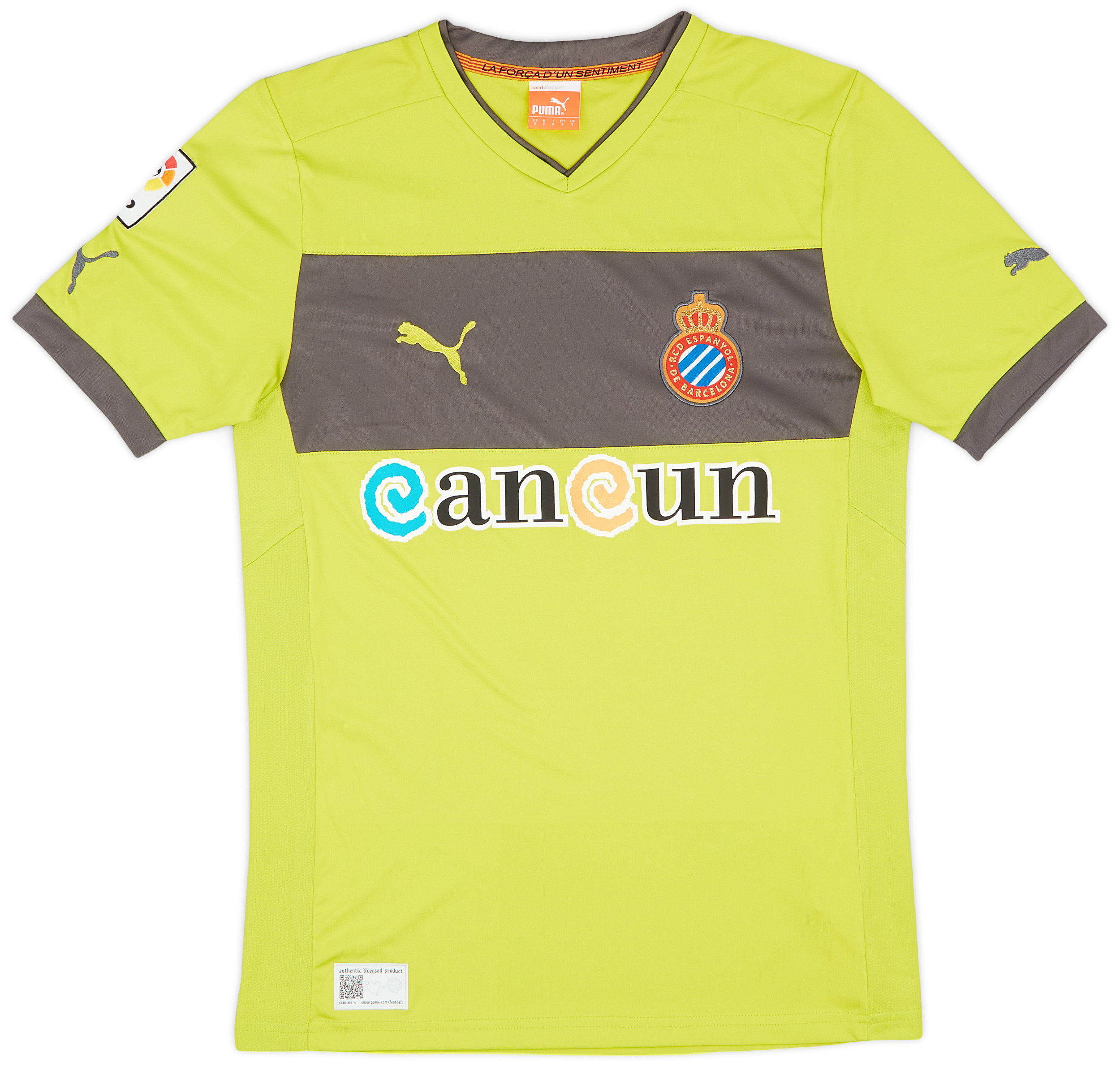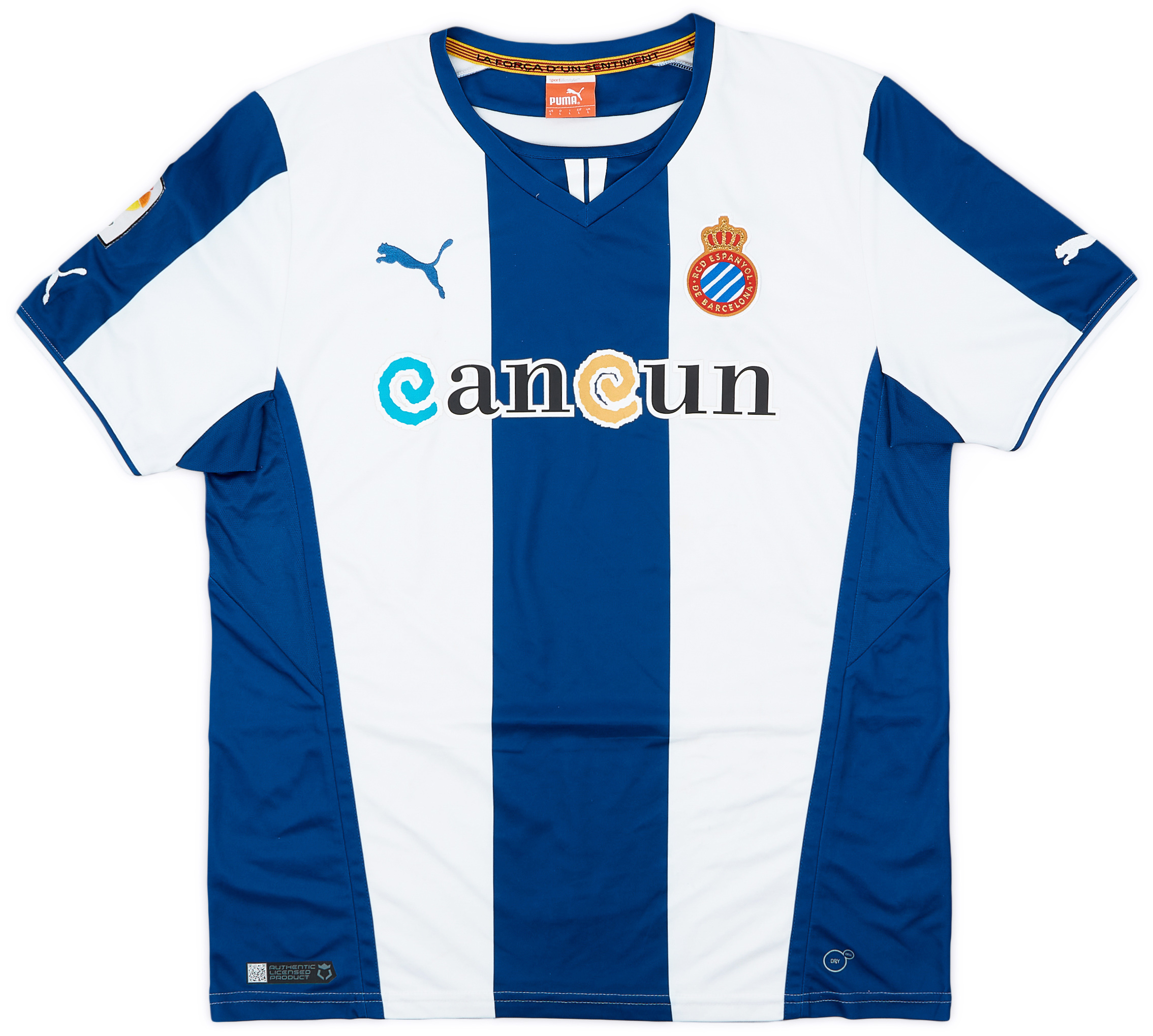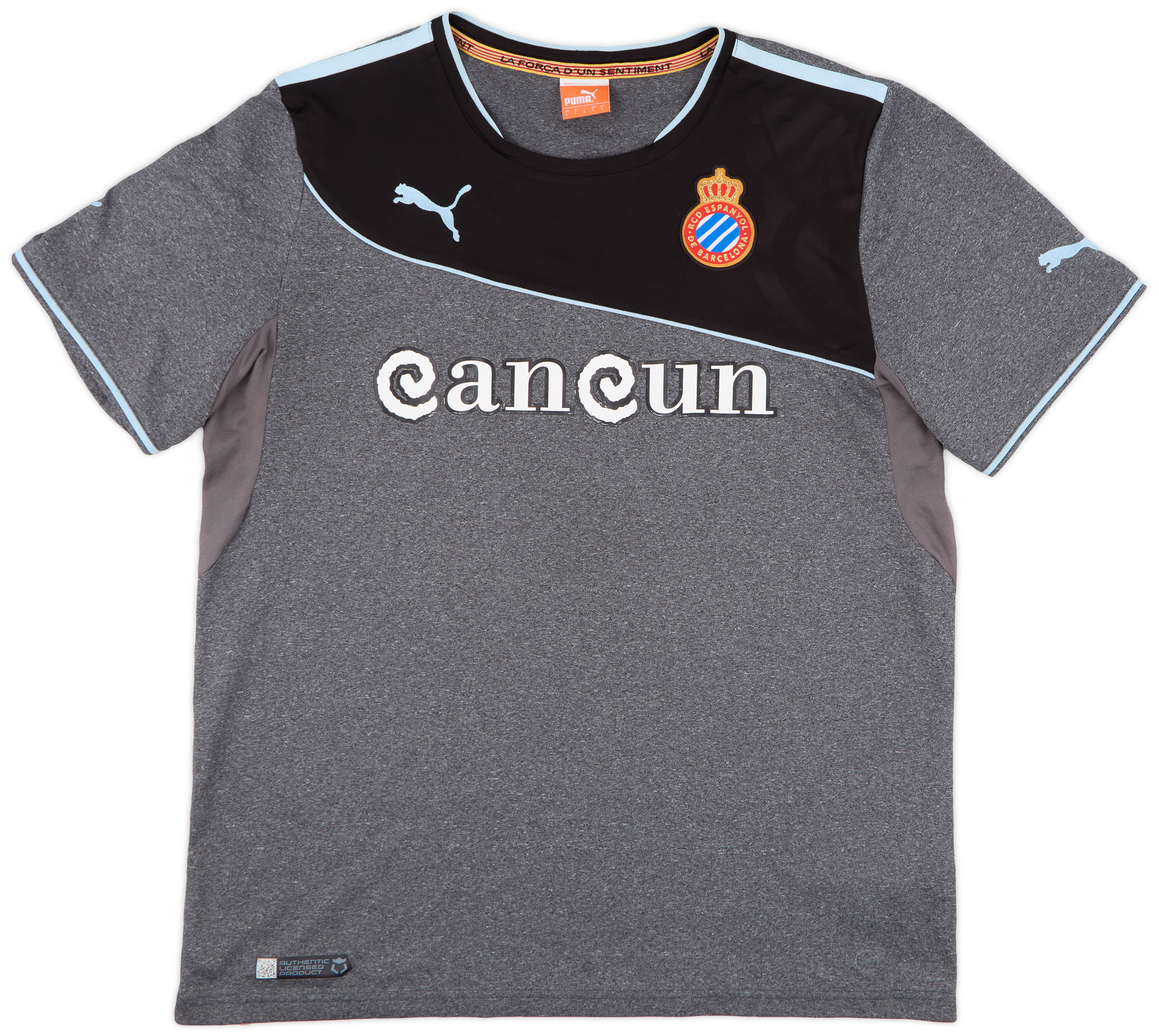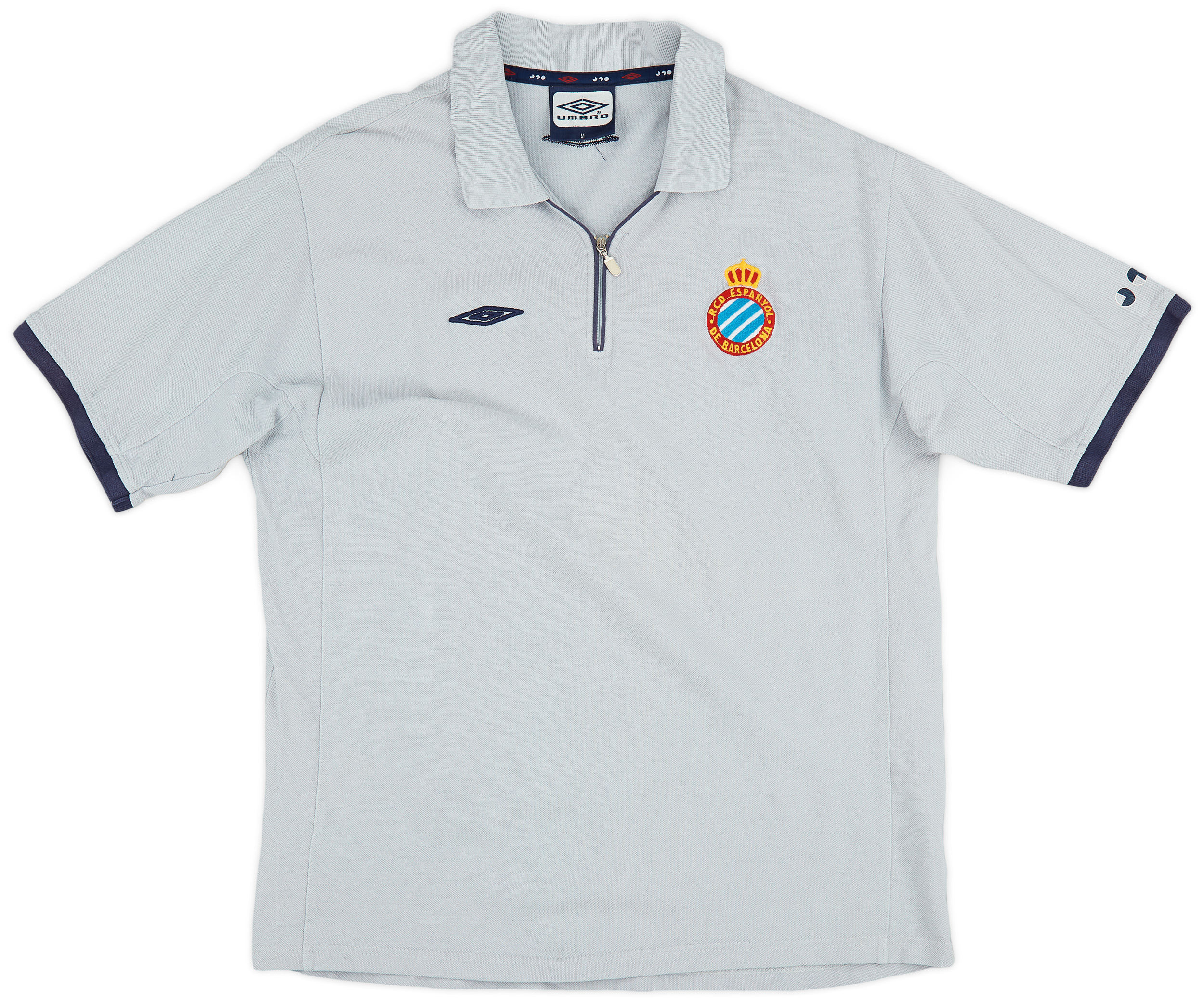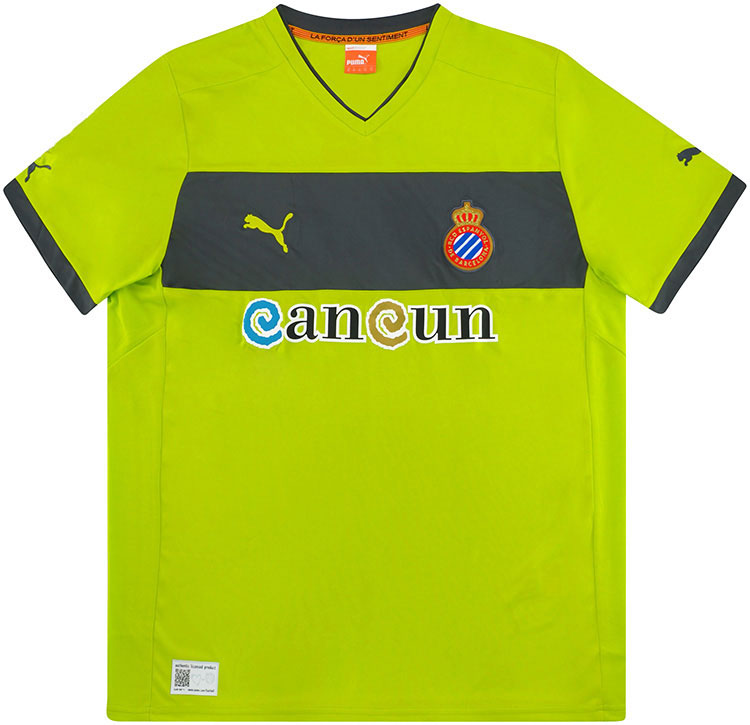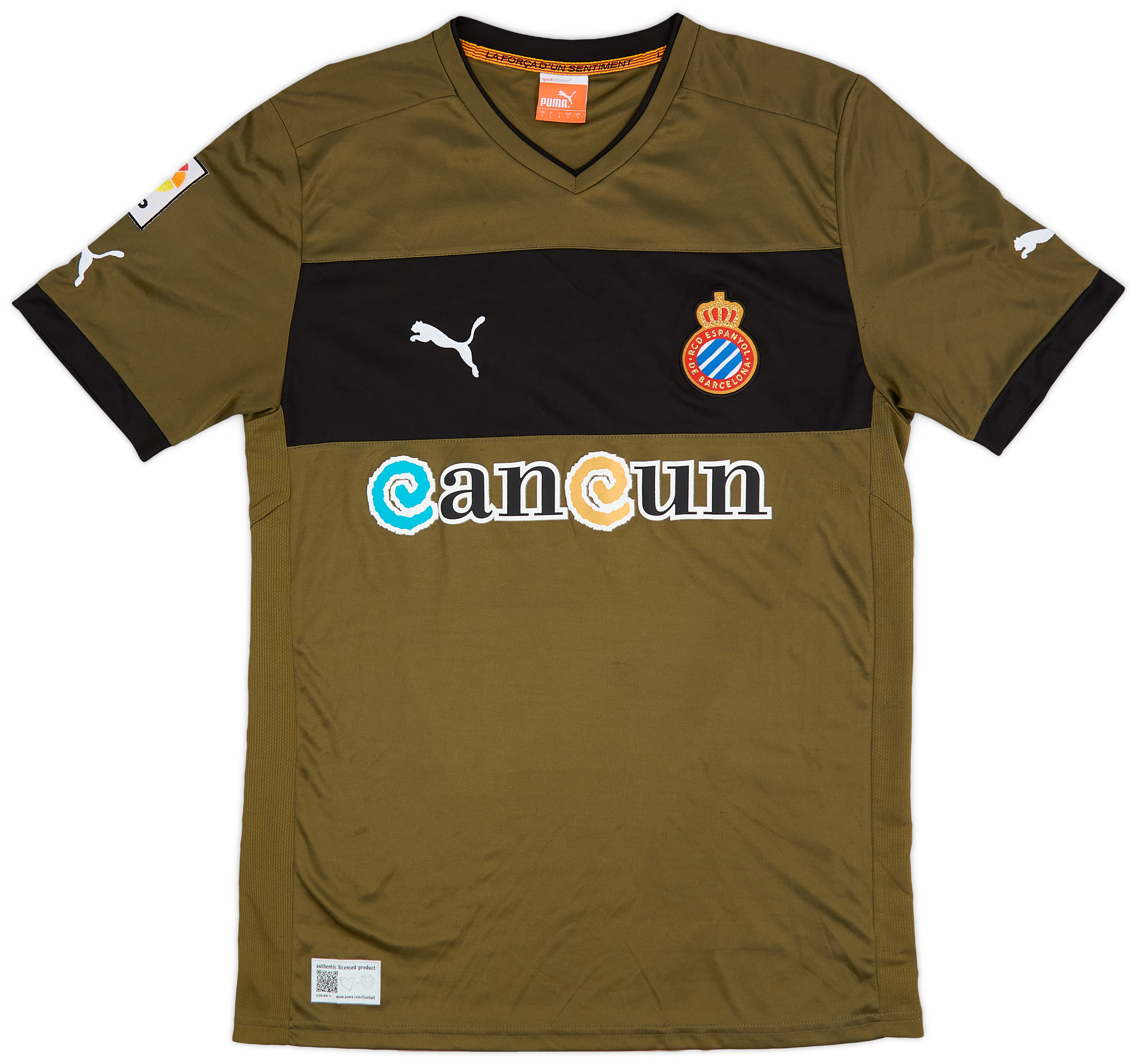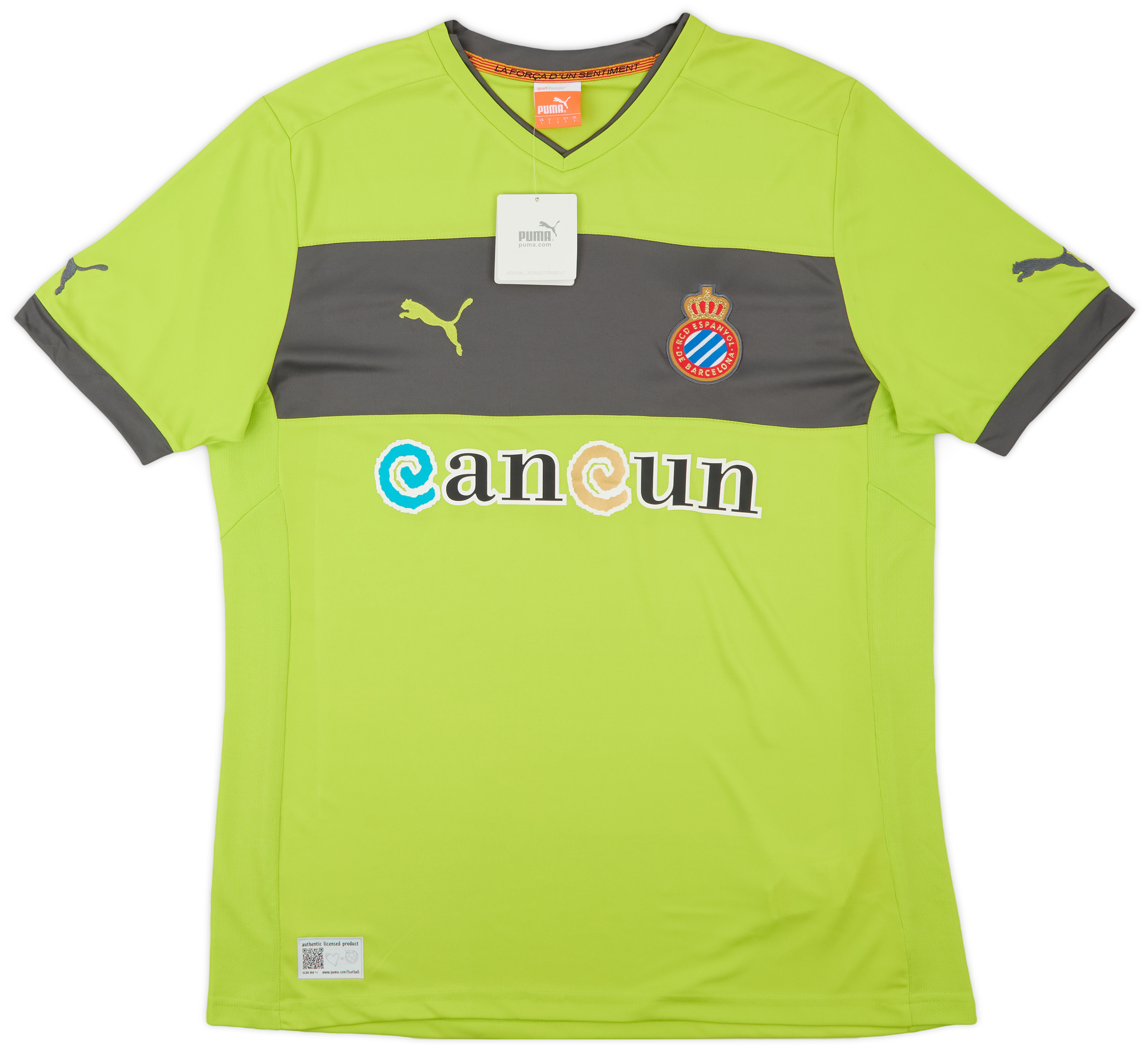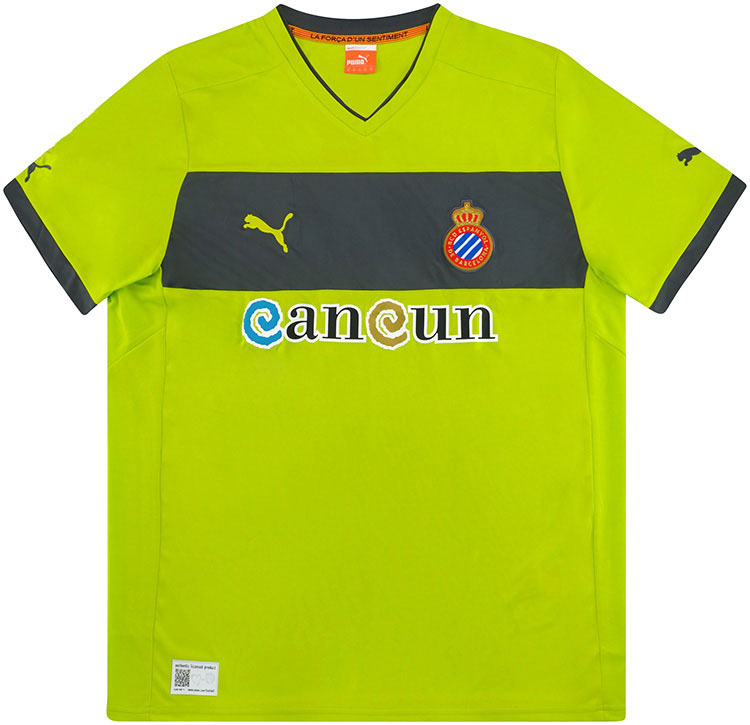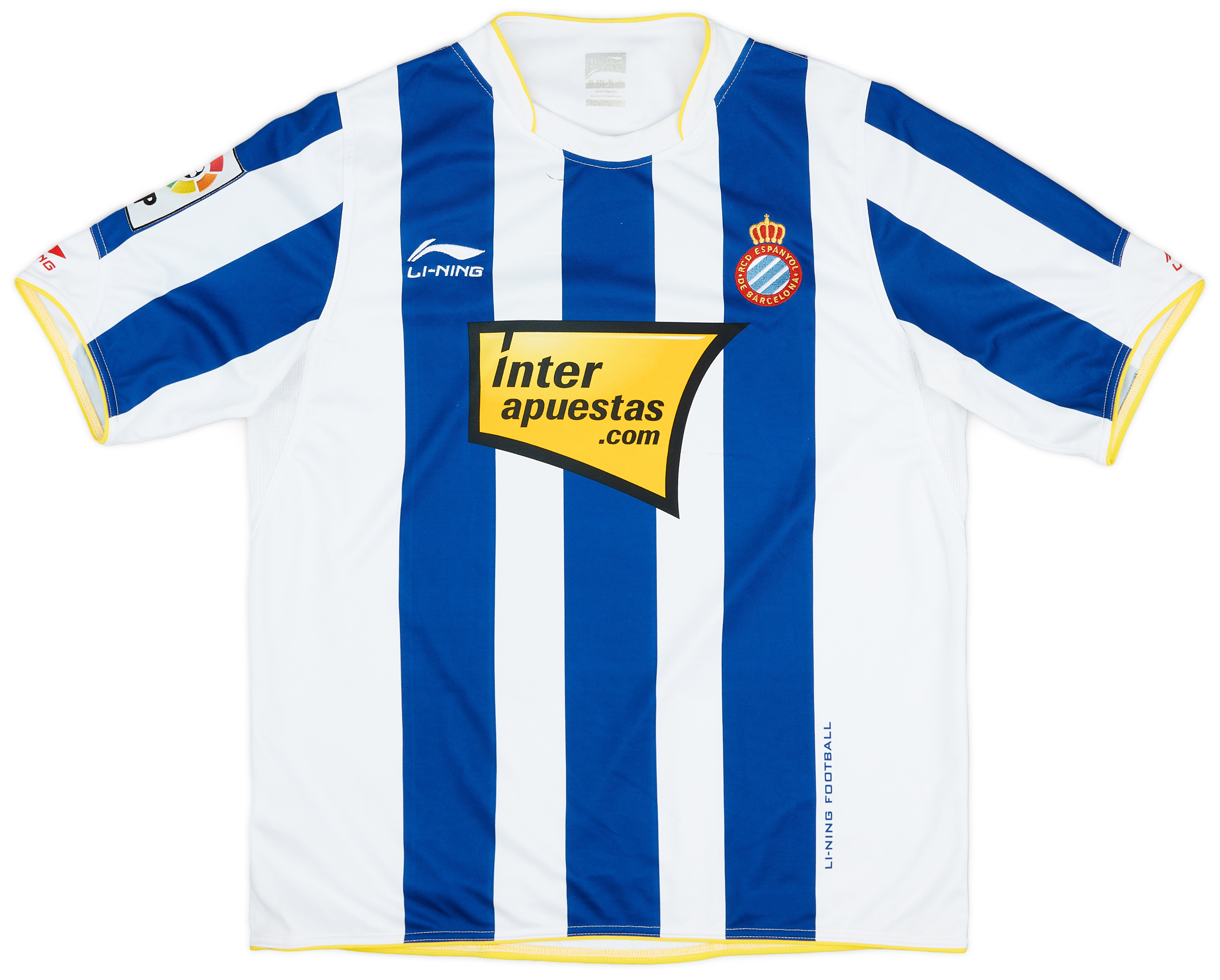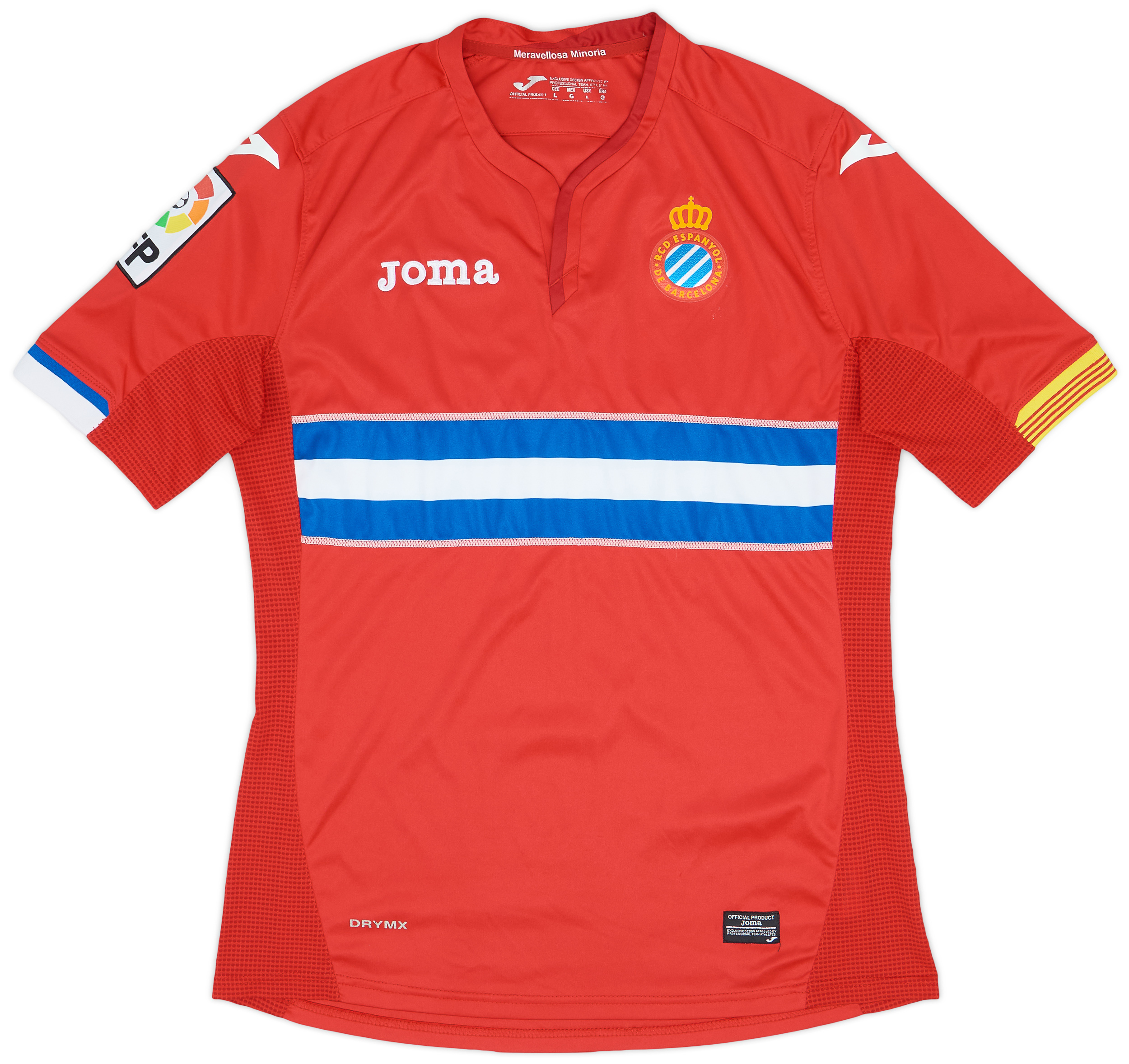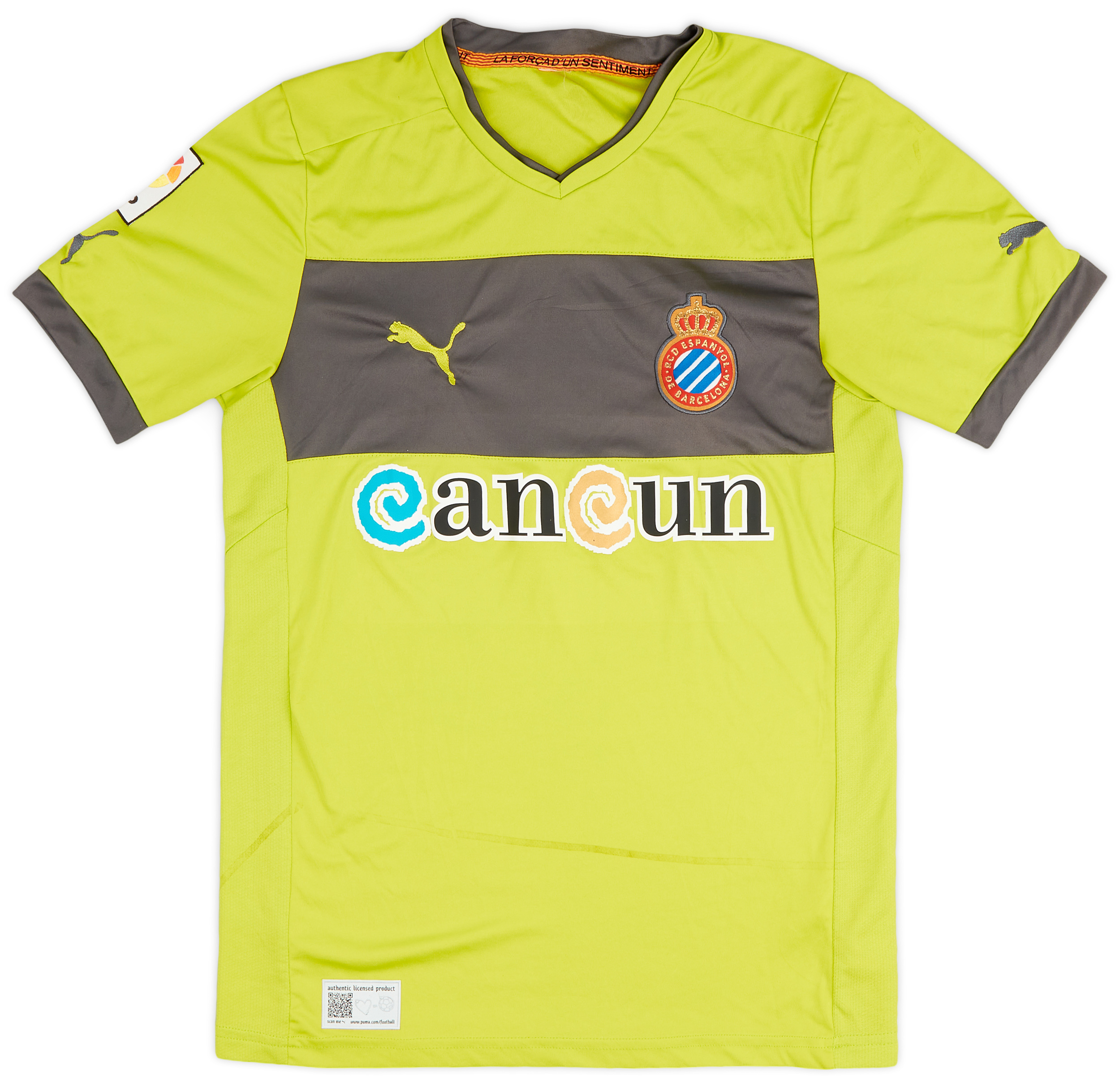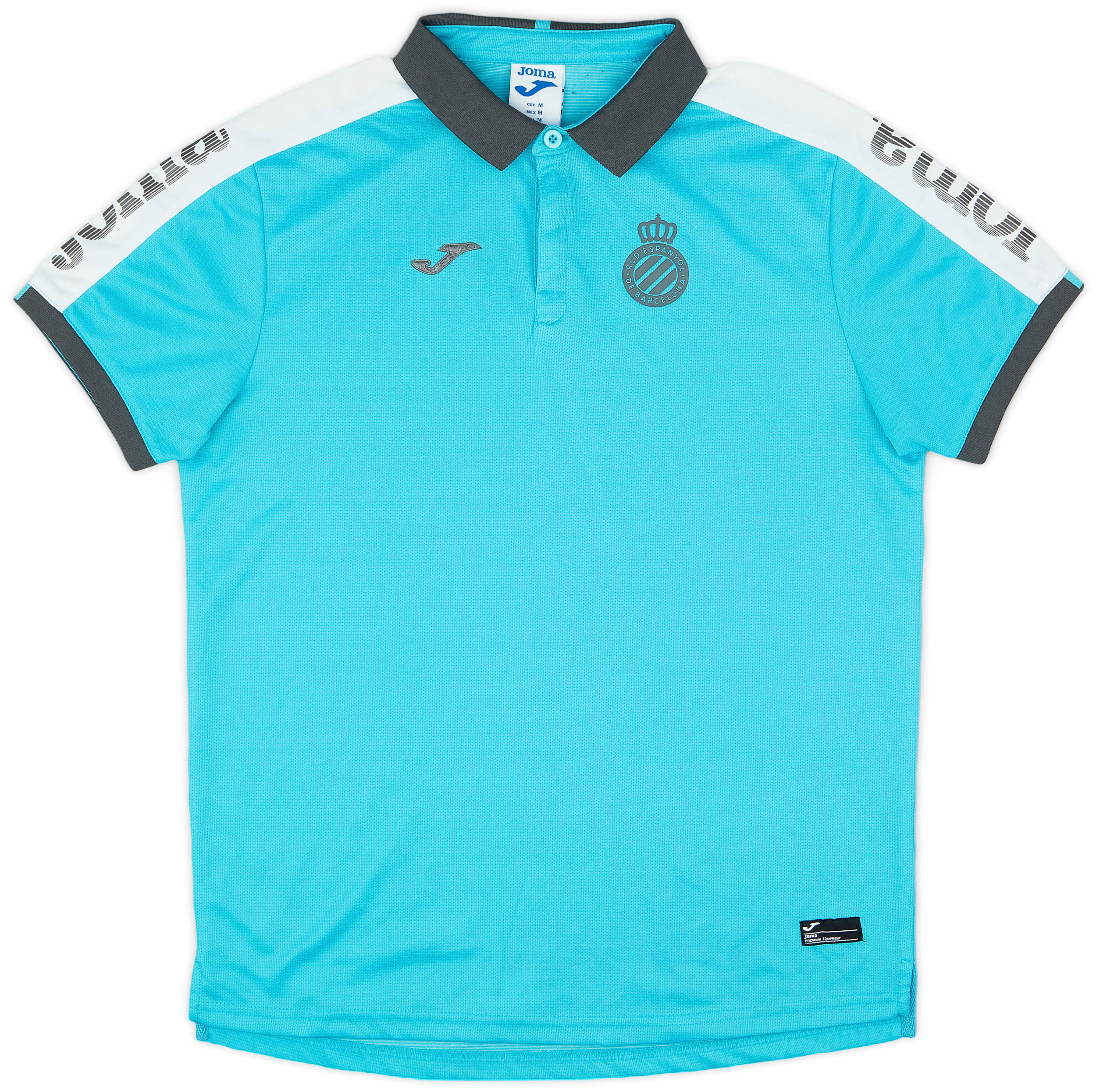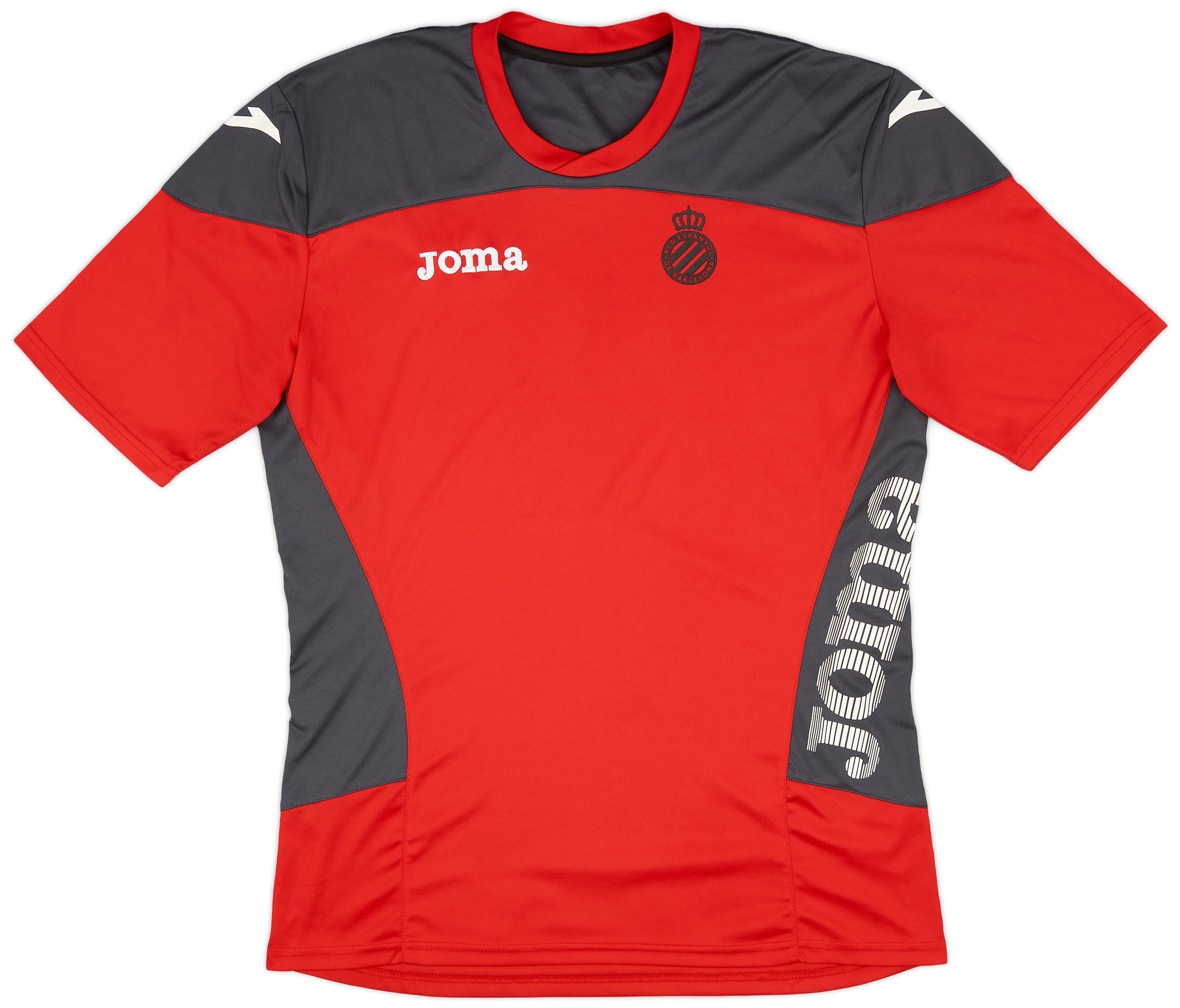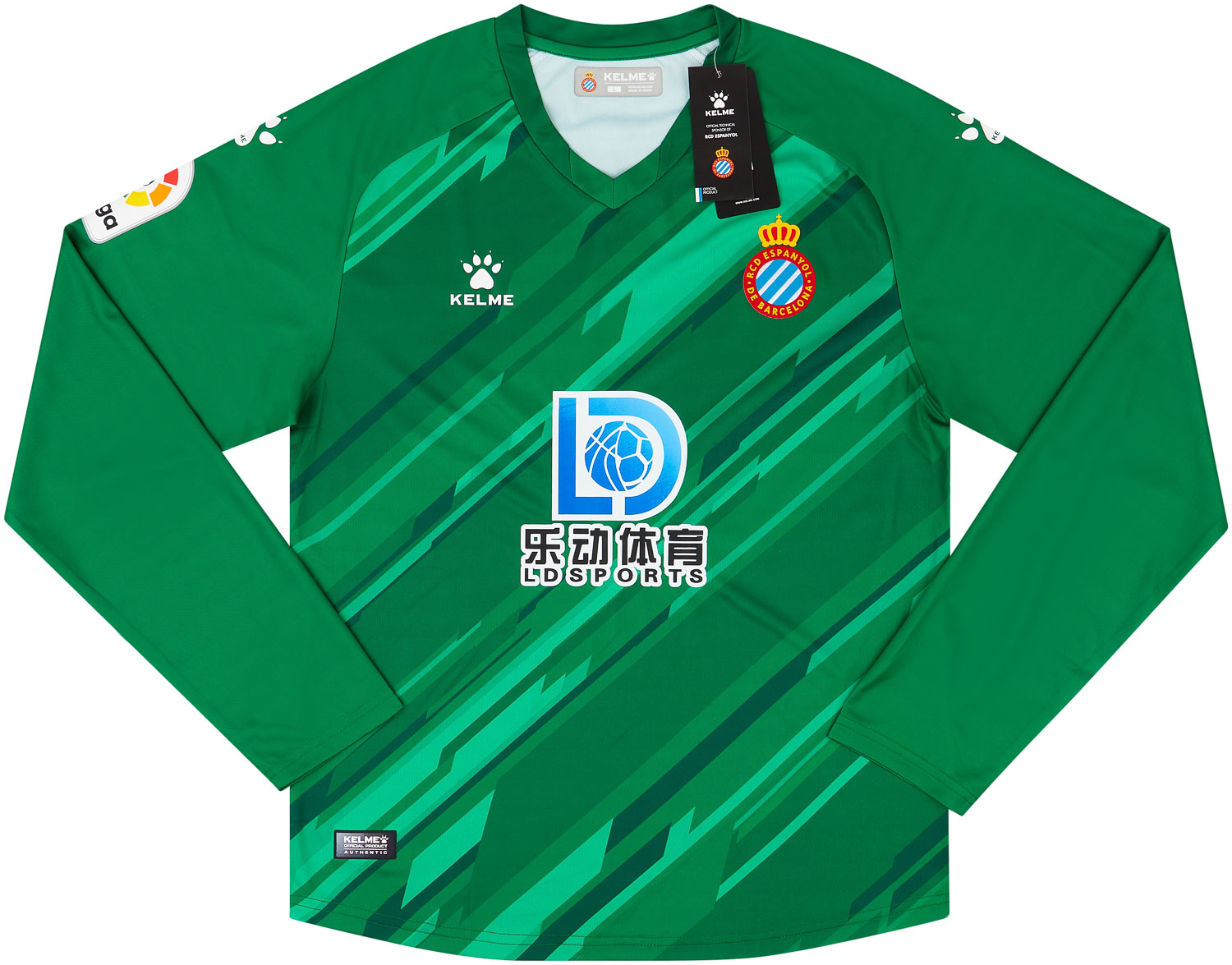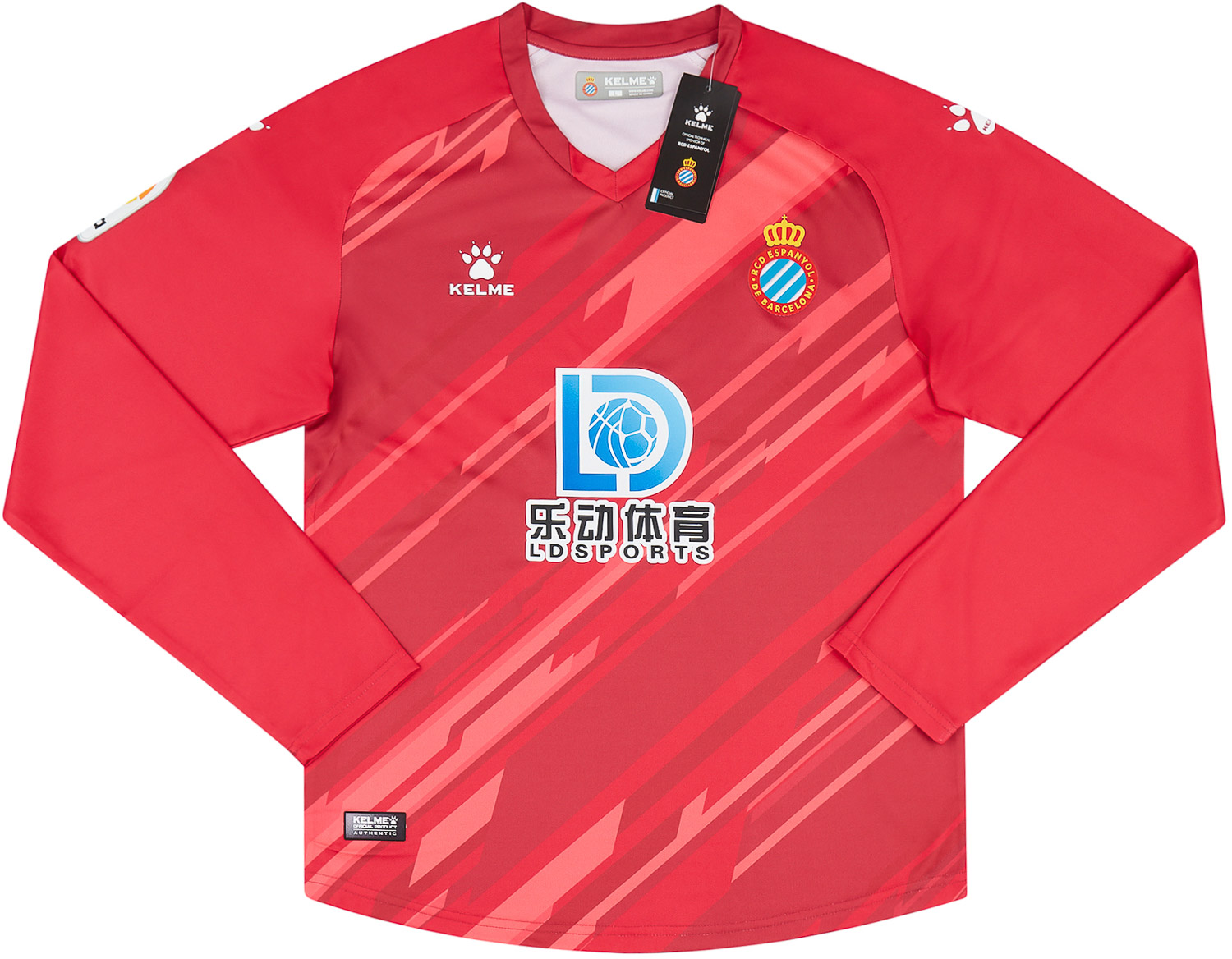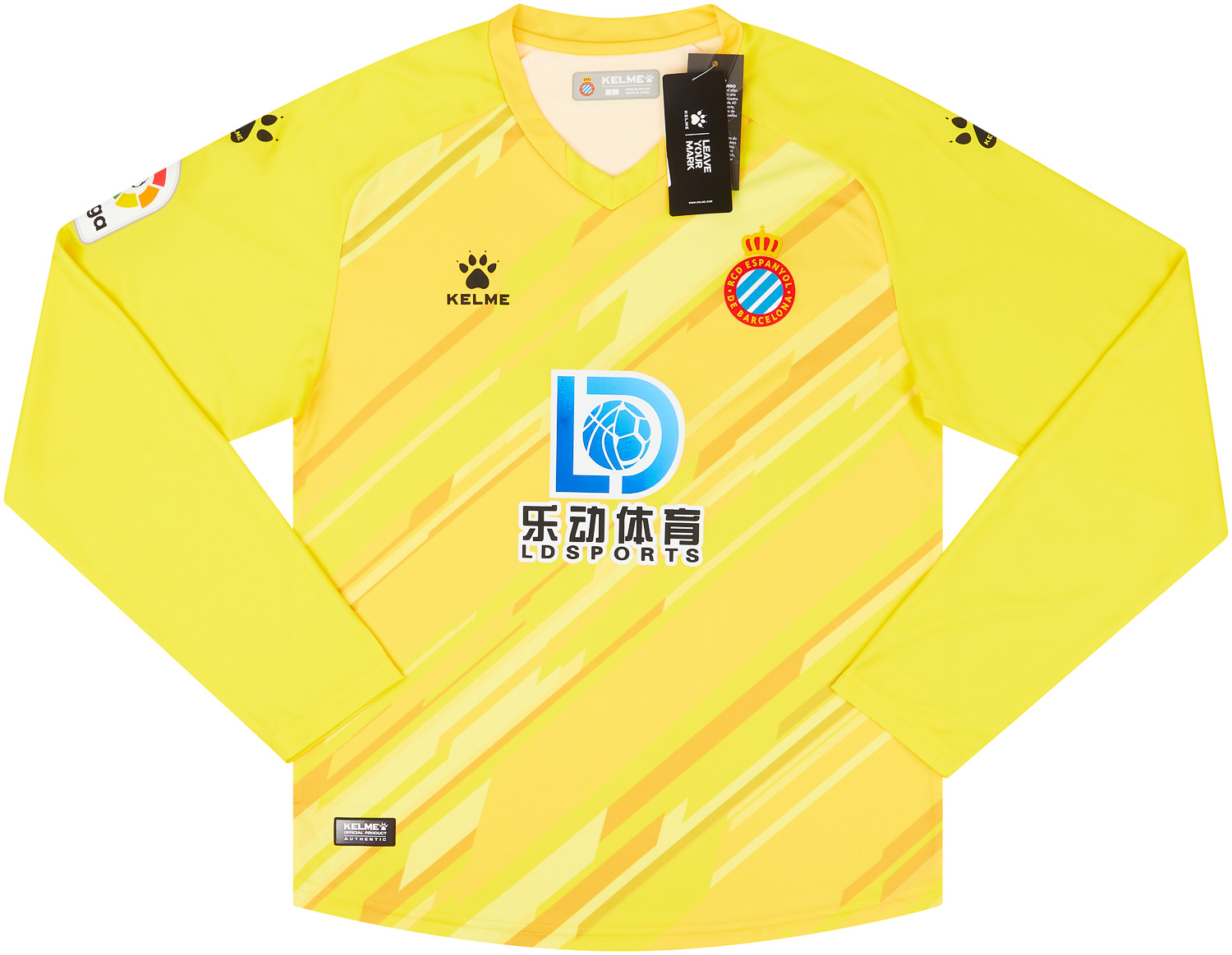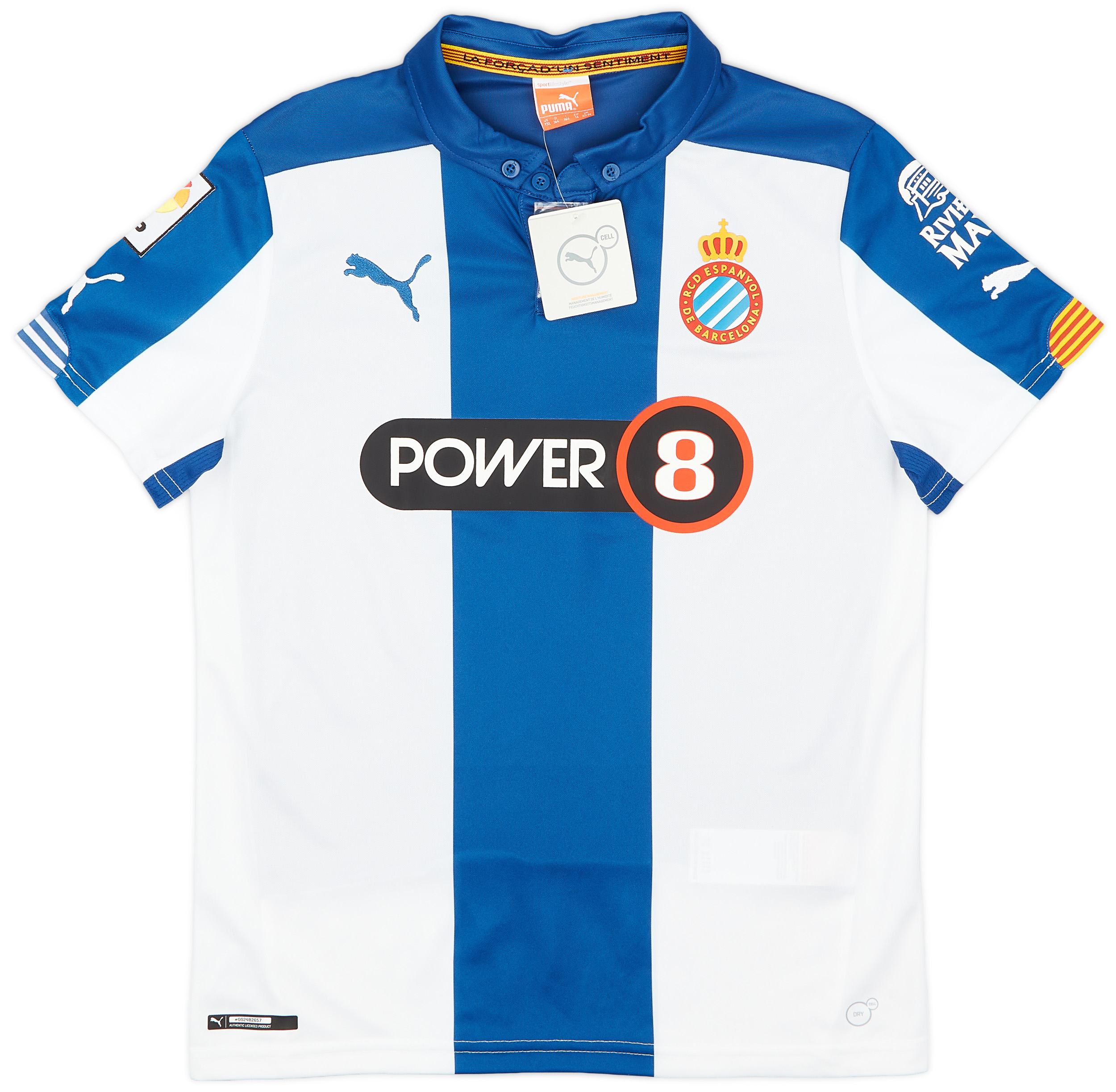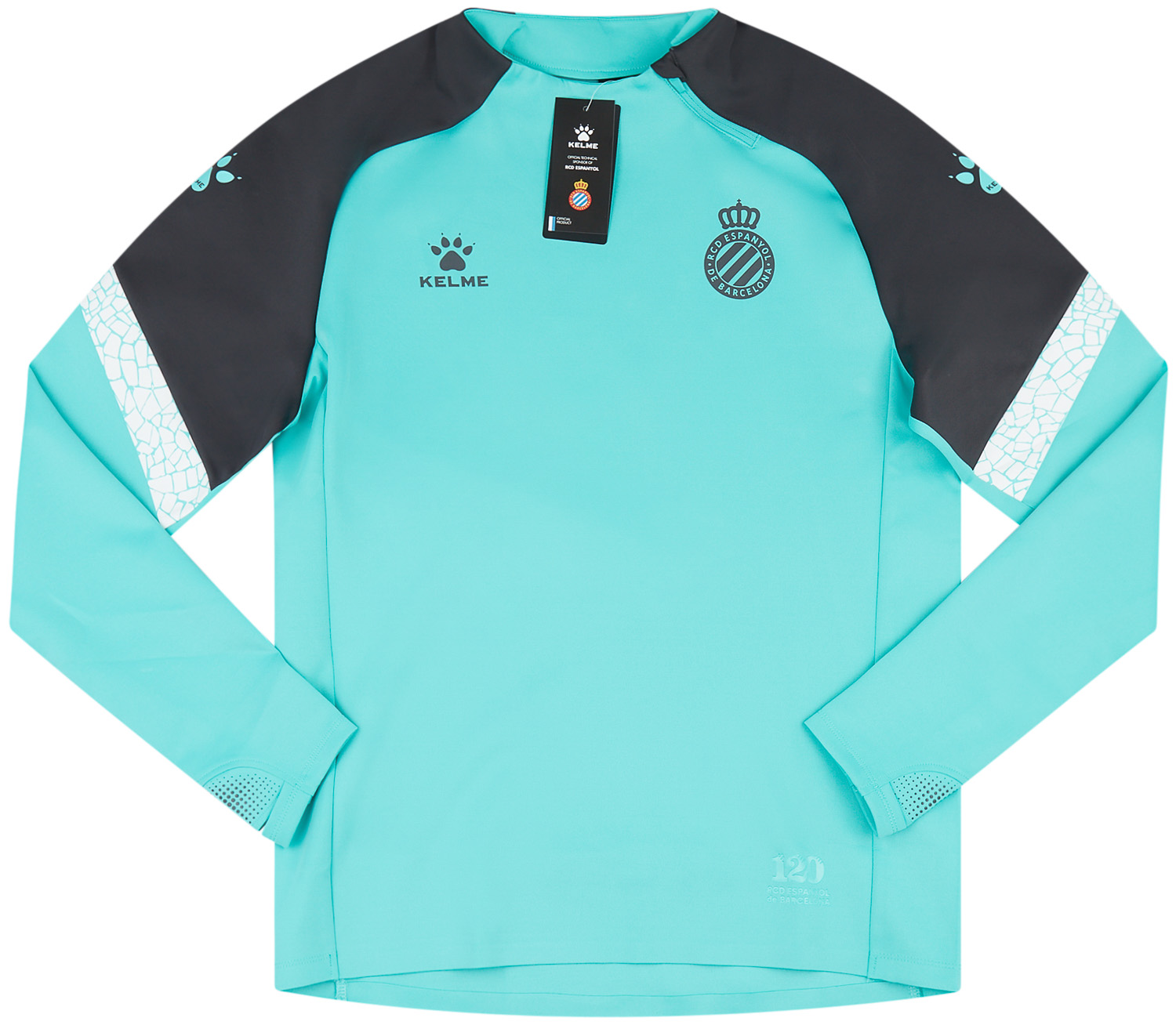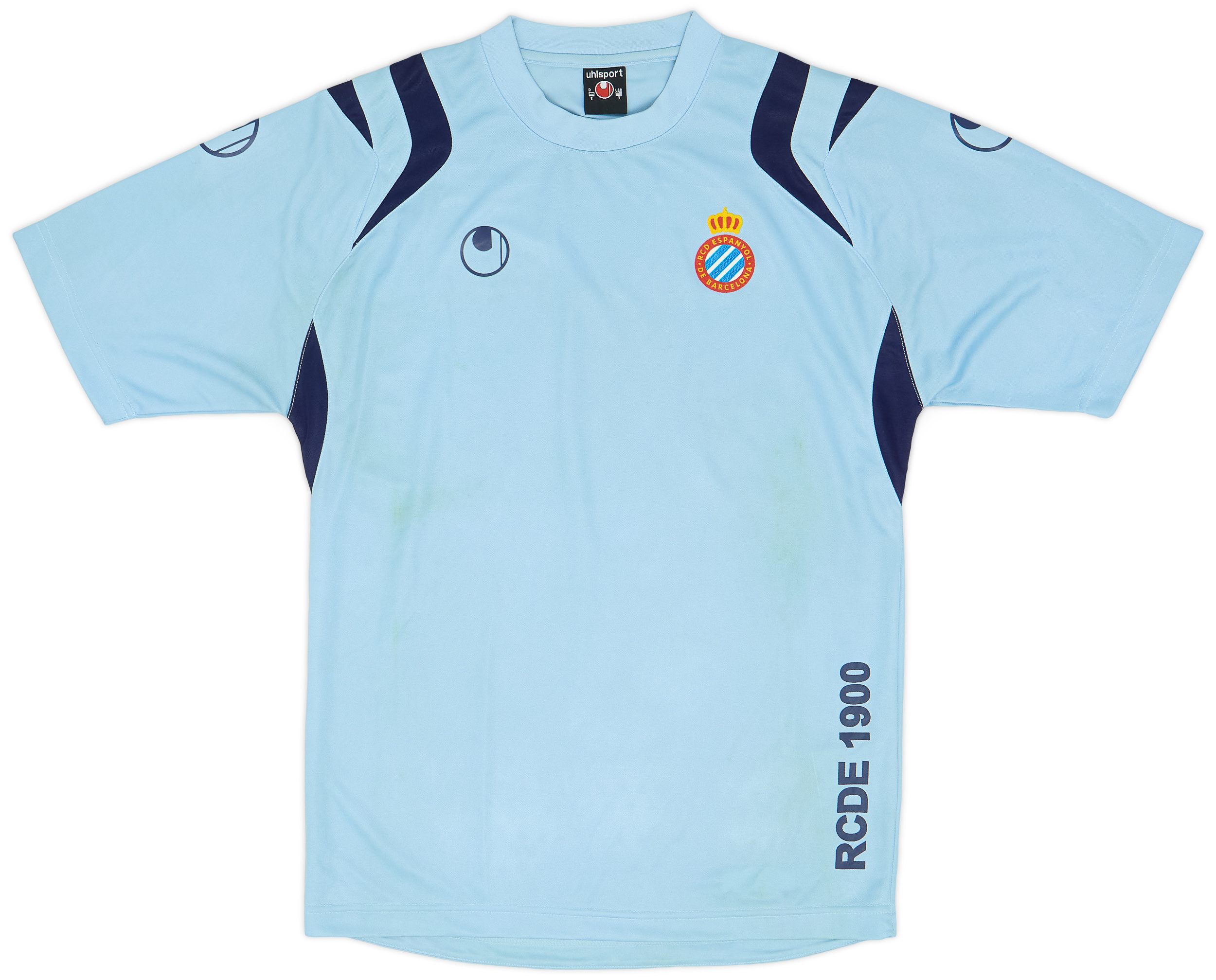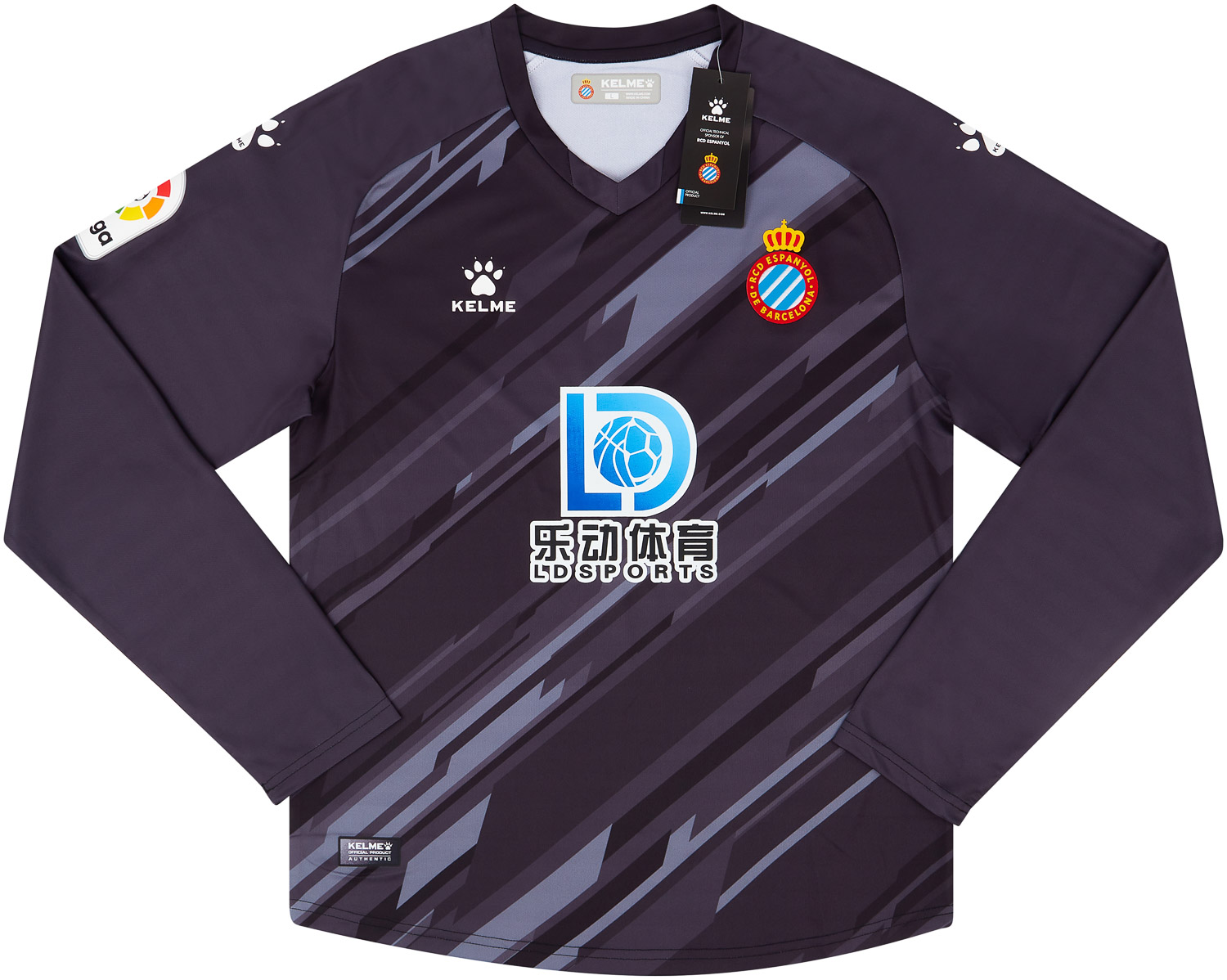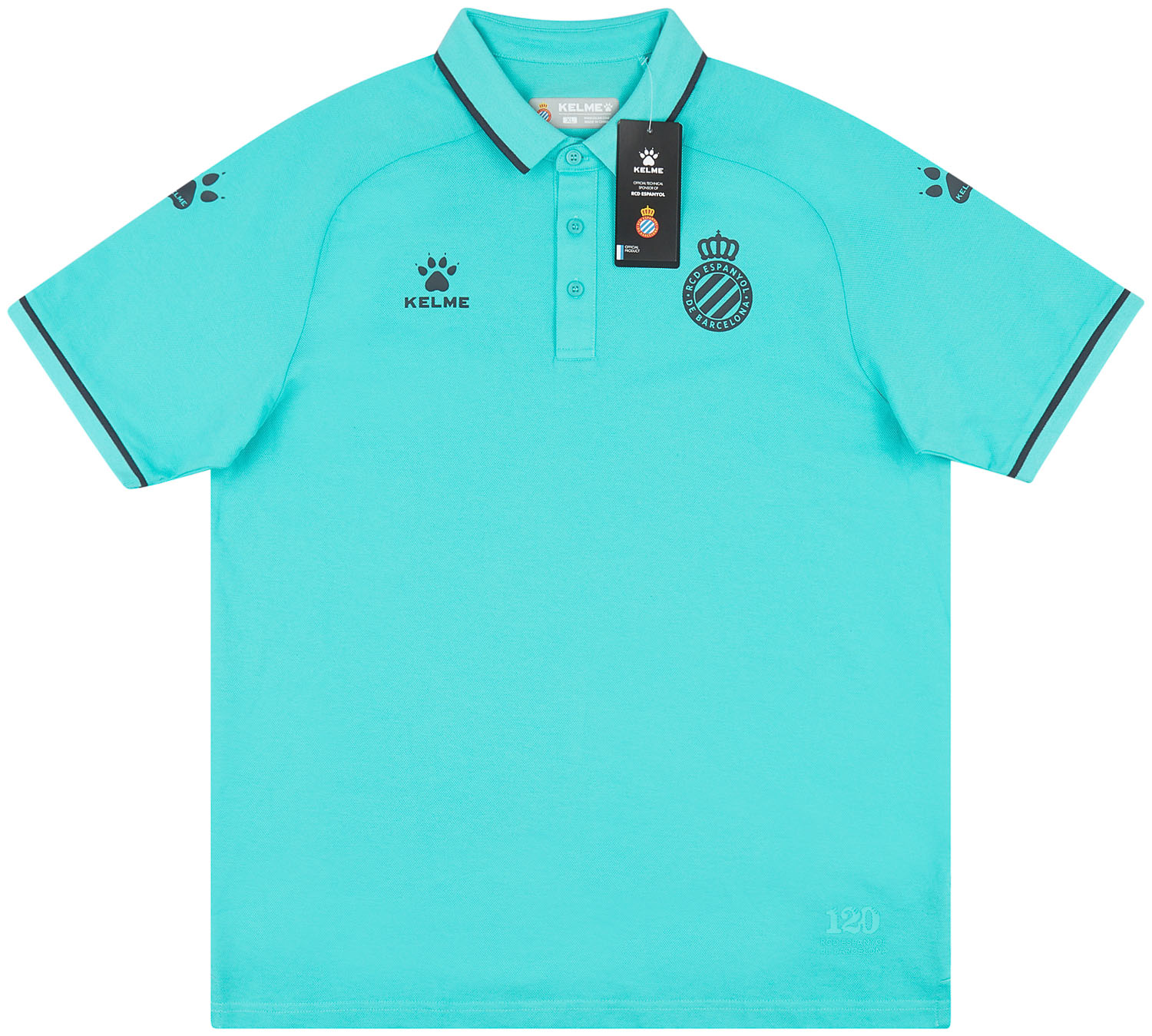Espanyol
Introduction RCD Espanyol, a notable football club based in Barcelona, Spain, is known for its rich history and passionate fanbase. Founded in 1900, the club is one of the oldest football teams in Spain and serves as a proud representative of Spanish football heritage. With its distinctive blue and white colors, Espanyol has cultivated a […]
1984-89 Espanyol Match Issue Home Shirt #16
296.99£ - ca: €350
1984-89 Espanyol Home Shirt - 8/10 - (XL)
296.99£ - ca: €350
1994-95 Espanyol Home Shirt (XL)
296.99£ - ca: €350
1999-00 Espanyol Centenary Home Shirt - 9/10 - (XL)
207.99£ - ca: €245
1999-00 Espanyol Home Shirt - 8/10 - (XL)
207.99£ - ca: €245
1997-98 Espanyol Home Shirt - 9/10 - (L)
177.99£ - ca: €210
1994-95 Espanyol Home Shirt - 9/10 - (XL)
177.99£ - ca: €210
1994-95 Espanyol Home Shirt - 8/10 - (XL)
177.99£ - ca: €210
1997-98 Espanyol Home Shirt - 9/10 - (L)
177.99£ - ca: €210
2001-02 Espanyol Home Shirt - 9/10 - (S)
148.99£ - ca: €176
1998-99 Espanyol Away Shirt - 6/10 - (XXL)
148.99£ - ca: €176
2000-01 Espanyol Centenary Home Shirt - 8/10 - (S)
148.99£ - ca: €176
1999-00 Espanyol John Smith Training L/S Top - 7/10 - (XL)
106.99£ - ca: €126
2024-25 Espanyol Home Shirt
90.99£ - ca: €107
2024-25 Espanyol Away Shirt
82.99£ - ca: €98
2024-25 Espanyol Third Shirt
82.99£ - ca: €98
2012-13 Espanyol Away Shirt (M)
77.99£ - ca: €92
2007-08 Espanyol Away Shirt - 8/10 - (XXL)
70.99£ - ca: €84
2014-15 Espanyol Home L/S Shirt - 9/10 - (L)
70.99£ - ca: €84
2012-13 Espanyol Away Shirt (S)
70.99£ - ca: €84
2012-13 Espanyol Home L/S Shirt - 9/10 - (S)
58.99£ - ca: €70
2022-23 Espanyol Third Shirt
58.99£ - ca: €70
2011-12 Espanyol Away Shirt - 8/10 - (S)
53.99£ - ca: €64
2023-24 Espanyol Away Shirt
53.99£ - ca: €64
2022-23 Espanyol Away Shirt
53.99£ - ca: €64
2010-11 Espanyol Home Shirt - 7/10 - (XL)
53.99£ - ca: €64
2012-13 Espanyol Home Shirt - 8/10 - (XXL)
53.99£ - ca: €64
2013-14 Espanyol Puma Sweat Top - 9/10 - (M)
49.99£ - ca: €59
2012-13 Espanyol Away Shirt - 9/10 - (S)
47.99£ - ca: €57
2013-14 Espanyol Home Shirt - 7/10 - (L)
47.99£ - ca: €57
2013-14 Espanyol Away Shirt - 8/10 - (L)
47.99£ - ca: €57
2004-05 Espanyol Umbro 1/4 Zip Polo Shirt - 9/10 - (M)
47.99£ - ca: €57
2012-13 Espanyol Away Shirt - 8/10 - (M)
47.99£ - ca: €57
2012-13 Espanyol Third Shirt - 8/10 - (L)
47.99£ - ca: €57
2012-13 Espanyol Away Shirt
47.99£ - ca: €57
2012-13 Espanyol Away Shirt - 8/10 - (S)
47.99£ - ca: €57
2010-11 Espanyol Home Shirt - 6/10 - (XL)
47.99£ - ca: €57
2015-16 Espanyol Away Shirt - 9/10 - (L)
47.99£ - ca: €57
2012-13 Espanyol Away Shirt - 7/10 - (S)
41.99£ - ca: €50
2015-16 Espanyol Joma Polo Shirt - 8/10 - (M)
29.99£ - ca: €35
2007-08 Espanyol Uhlsport Training Shirt - 6/10 - (S)
29.99£ - ca: €35
2016-17 Espanyol Joma Training Shirt - 8/10 - (M)
29.99£ - ca: €35
2020-21 Espanyol GK Shirt
23.99£ - ca: €28
2020-21 Espanyol GK Shirt
20.99£ - ca: €25
2020-21 Espanyol GK Shirt
20.99£ - ca: €25
2014-15 Espanyol Home Shirt (KIDS)
20.99£ - ca: €25
2020-21 Espanyol Kelme Training Sweat Top
17.99£ - ca: €21
2007-08 Espanyol Uhlsport Training Shirt - 5/10 - (S)
17.99£ - ca: €21
2020-21 Espanyol GK Shirt
17.99£ - ca: €21
2020-21 Espanyol Kelme Training Sweat Top
14.99£ - ca: €18
2020-21 Espanyol Kelme Polo T-Shirt
7.99£ - ca: €9
2020-21 Espanyol Kelme Compression Undershorts
5.99£ - ca: €7
Warning: A non-numeric value encountered in /var/www/netskribent.dk/retro-football-shirt.com/wp-content/themes/boot5/single-clubs.php on line 148
Introduction
RCD Espanyol, a notable football club based in Barcelona, Spain, is known for its rich history and passionate fanbase. Founded in 1900, the club is one of the oldest football teams in Spain and serves as a proud representative of Spanish football heritage. With its distinctive blue and white colors, Espanyol has cultivated a strong identity that resonates deeply with its supporters, often referred to as “Pericos.” The club’s longstanding rivalry with FC Barcelona, the other major club in the city, highlights its significance within the local football culture.
Club History
RCD Espanyol was established on March 28, 1900, by a group of students, making it the first football club in Spain founded by Spanish nationals. The formation of the club marked a new era in Spanish football, as it aimed to promote the sport and provide local players with opportunities. In the early years, Espanyol faced challenges with the competitive nature of football, yet they quickly rose to prominence, competing in various regional leagues. By 1929, the club had joined La Liga, the top tier of Spanish football, solidifying its status as one of the nation’s key teams.
Throughout the years, Espanyol has experienced its share of ups and downs, including relegations and promotions. Notably, the club enjoyed considerable success in the mid-20th century, winning the Copa del Rey six times between 1929 and 2000. Their most memorable moment came in 1929 when they secured their first Copa del Rey title, defeating Real Madrid, showcasing their competitive spirit from the outset.
Achievements
RCD Espanyol boasts a commendable record of achievements in both domestic and international competitions. The club has won the Copa del Rey on four occasions—1929, 1940, 2000, and 2006. Additionally, they have succeeded in the Supercopa de España, claiming this title in 1988. While primarily recognized for their domestic success, Espanyol has also made a mark internationally, reaching the final stages of European competitions. The most notable achievement came in the 1988-89 UEFA Cup, where the club finished as runners-up after a dramatic penalty shootout against Bayer Uerdingen.
Espanyol has participated in European competitions multiple times, reinforcing their status on an international level. Their consistent presence in La Liga, often finishing in the upper half of the table, attests to the club’s competitive nature and capability to nurture skilled players.
Significant Players and Matches
Over the years, Espanyol has been home to several talented players who have left an indelible mark on the club’s history. One of the most significant figures is Raúl Tamudo, a notable forward who holds the record for the most goals scored for the club. His loyalty and scoring prowess during his time from 1997 to 2010 endeared him to the supporters and earned him legendary status.
Another key player is Dani Jarque, a midfielder revered for his leadership qualities. Tragically, his life was cut short in 2009, but his legacy continues to inspire fans. The club also honored Jarque with a memorial, showcasing the strong connection between players and supporters.
Among landmark matches, the Copa del Rey final in 2000 against Atlético Madrid stands out, where Espanyol emerged victorious after a thrilling encounter. Similarly, a fiercely contested derby match against FC Barcelona in the 2008-09 season saw Espanyol holding their rivals to a memorable 2-2 draw, illustrating the intense rivalry that exists between the two clubs and their passionate fanbases.
Cultural Impact
Espanyol is not just a football club; it is a cultural institution in Barcelona. The team has a unique identity that reflects the city’s social fabric, attracting a diverse following. The club’s foundation was rooted in Catalan pride, distinguishing it from the more international profile of FC Barcelona. This local identity is reinforced through various community initiatives and outreach programs aimed at fostering engagement with fans and promoting football development at the grassroots level.
The passionate Espanyol supporters are known for their unwavering loyalty, creating an electric atmosphere at their home ground, the RCDE Stadium. This camaraderie extends beyond match days, as fans participate in various cultural events and activities, embodying the essence of the “Pericos.” The involvement of the club in local charities and community programs further illustrates its commitment to the city of Barcelona and its residents.
Conclusion
RCD Espanyol stands as a beacon of football history in Spain, marked by its rich heritage, impressive achievements, and passionate fanbase. The club’s evolution over more than a century illustrates its resilience and commitment to excellence in the world of football. From its significant players to landmark matches that defined eras, Espanyol has woven itself into the narrative of Spanish football. As the club continues to evolve, it carries with it the hopes and dreams of its supporters, solidifying its place in the heart of Barcelona and beyond.
